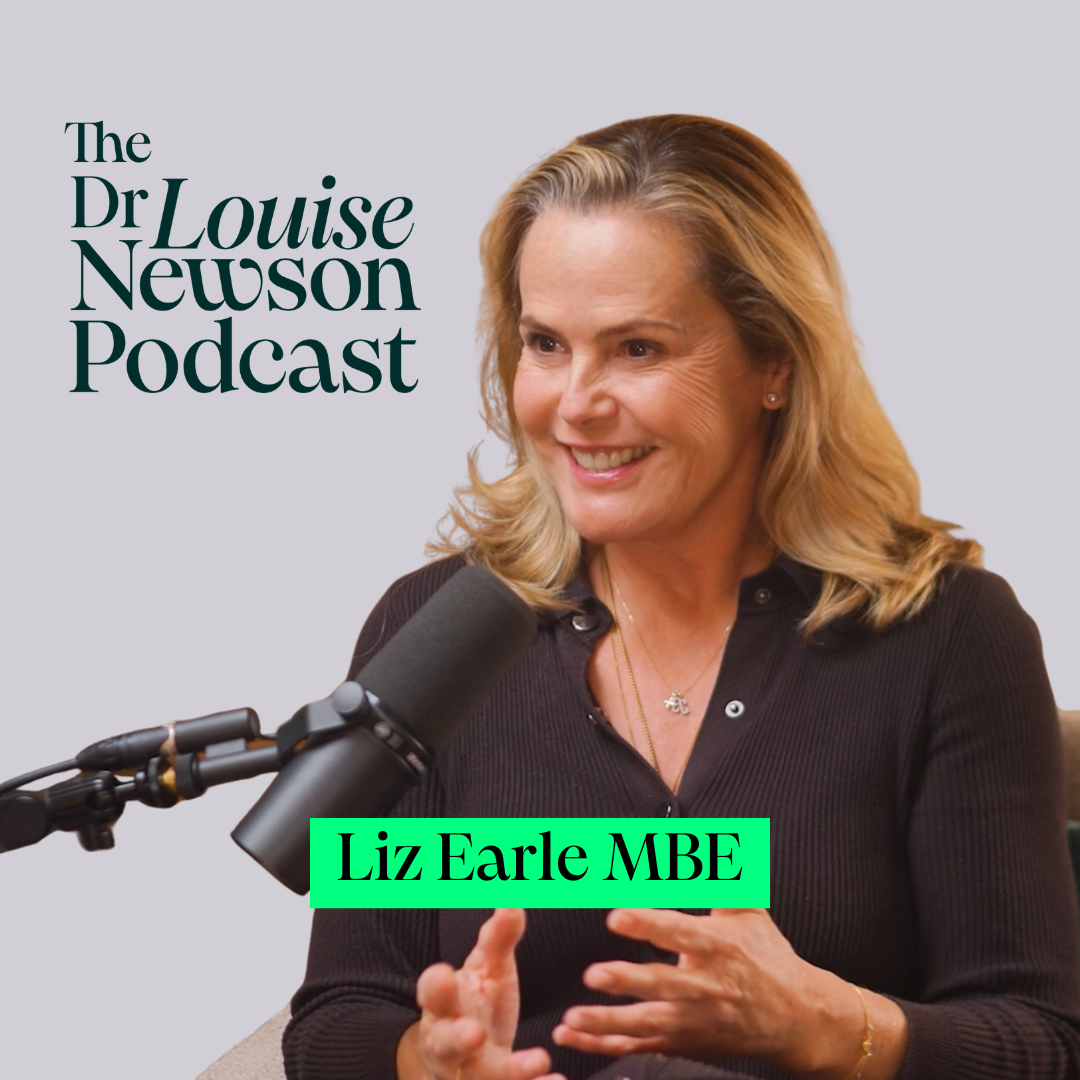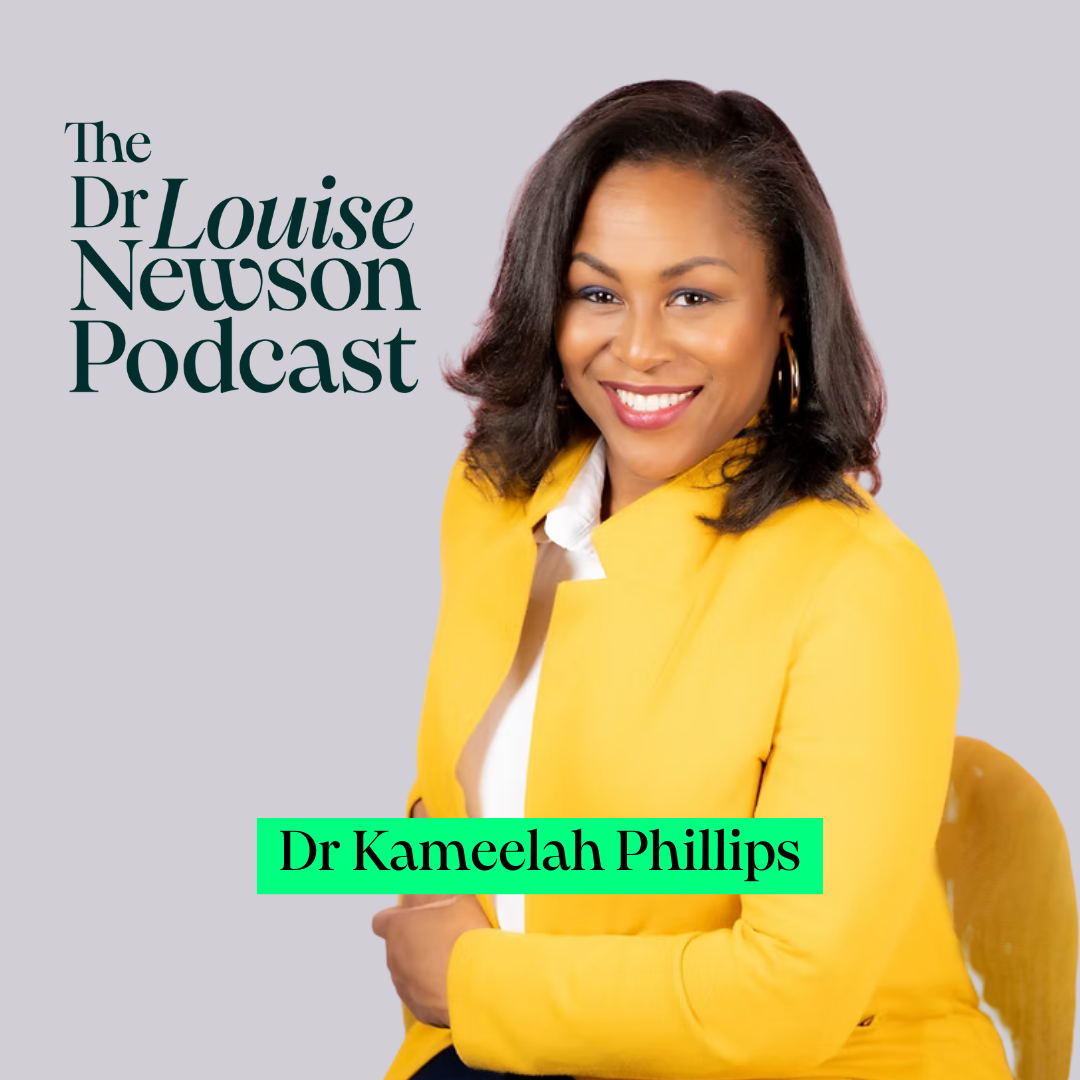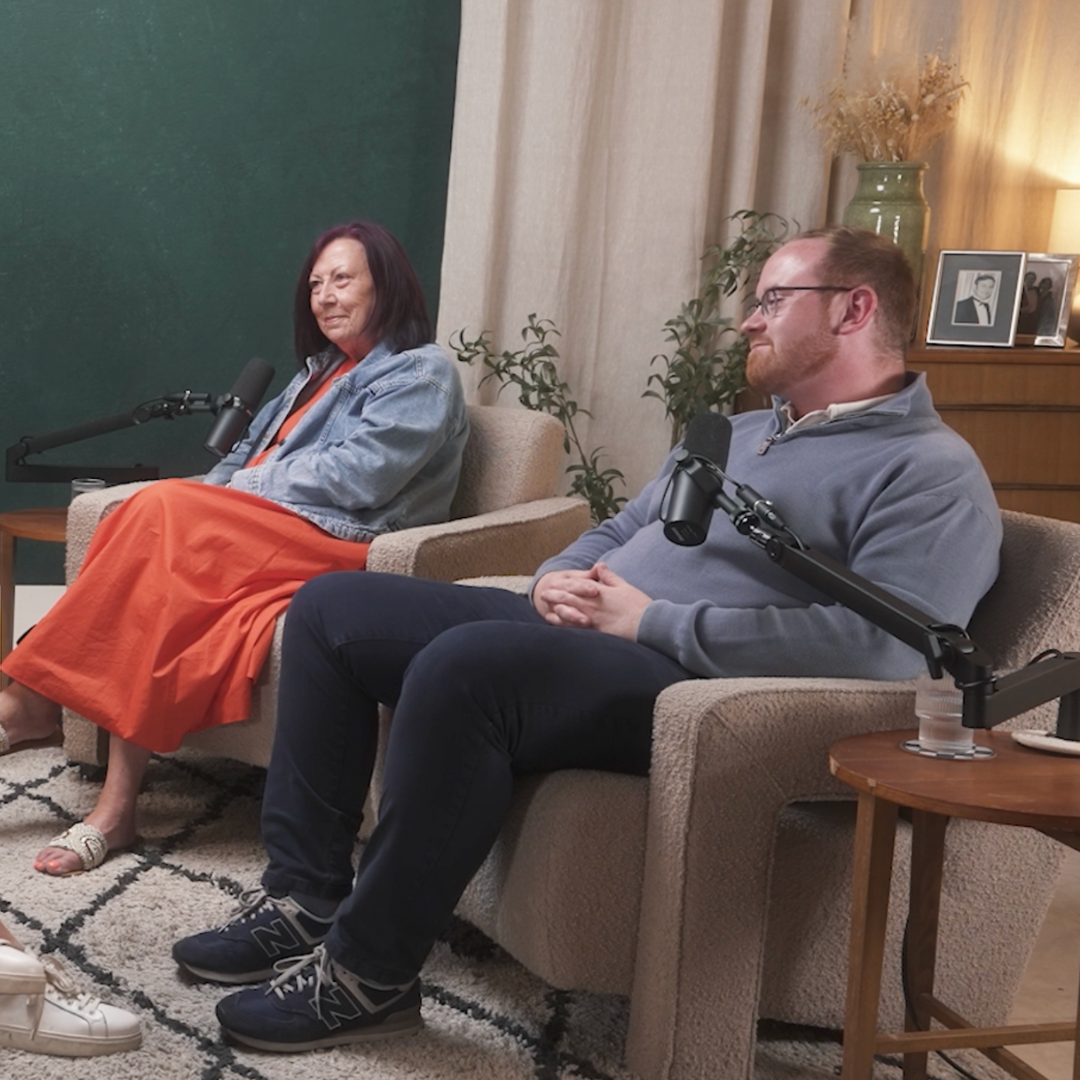Menu

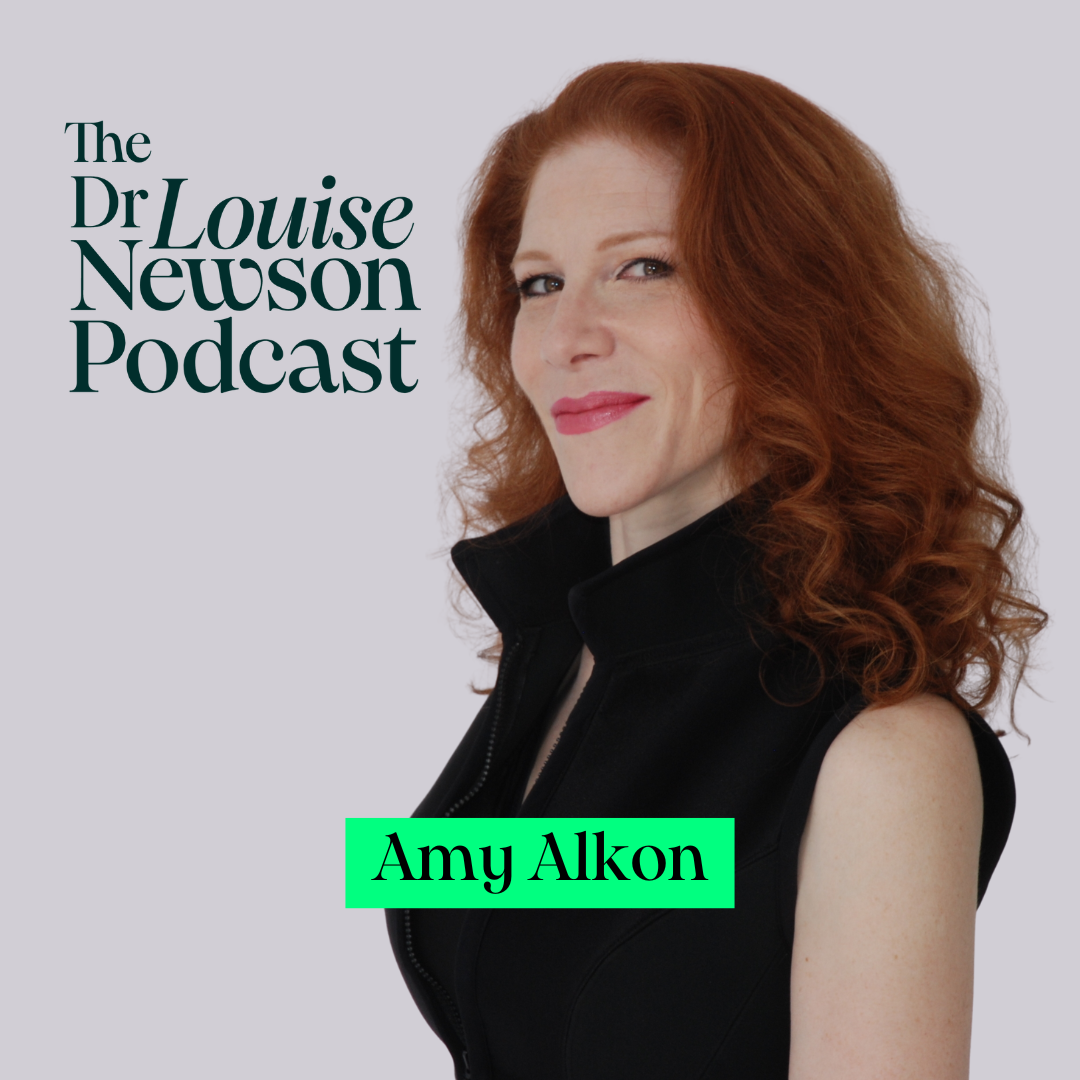
Despite increased awareness, misinformation around menopause is still everywhere with outdated fears about hormone therapy, confusion over types of hormones and mixed messages about risks leaving many women unsure where to turn.
In this episode, Dr Louise Newson sits down with Amy Alkon, an American author and science writer, for a clear-eyed look at what the evidence really shows. Amy’s book, Going Menopostal, unpacks the research behind menopause and exposes how gaps in medical education still affect women’s care.
Their conversation covers the differences between hormone types, the importance of scientific literacy in medicine and the value of personalised, evidence-based treatment. It’s an honest, informative discussion that helps separate fact from assumption in menopause care.
LET'S CONNECT
Subscribe here 👉 https://www.youtube.com/@menopause_doctor
Website 👉 https://www.drlouisenewson.co.uk/
Instagram 👉 / @drlouisenewsonpodcast
Download balance app 👉 / https://www.balance-menopause.com/balance-app/
LinkedIn 👉 / https://www.linkedin.com/in/drlouisenewson/
TikTok 👉 / https://www.tiktok.com/@drlouisenewson
Spotify 👉 https://open.spotify.com/show/7dCctfyI9bODGDaFnjfKhg
LEARN MORE
Buy Amy’s book, Going Menopostal 👉
https://www.amazon.co.uk/Going-Menopostal-Science-Menopause-Perimenopause/dp/1637742452
Take my online education course, Hormones Unlocked 👉 https://www.learningwithexperts.com/products/hormones-unlocked-dr-louise-newson
Sign up for my Confidence in Menopause Course 👉 https://www.drlouisenewson.co.uk/education---confidence-in-menopause

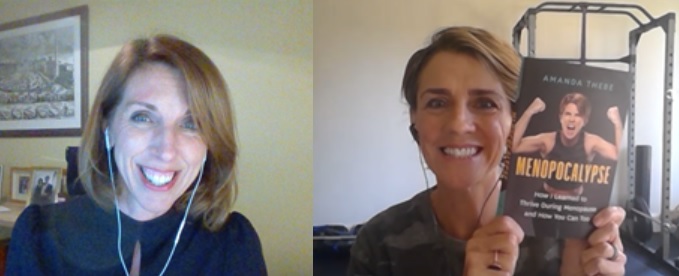
Amanda Thebe is a personal trainer and nutrition coach, with nearly three decades in the health and wellness industry. She is the author of Menopocalypse: How I Learned To Thrive During Menopause and How You Can Too!. Dr Newson actually helped Amanda with the HRT chapter in the book. Amanda (who is British) joins Dr Newson from her home in Texas, USA.
In this episode, Dr Newson and Amanda discuss how menopause awareness differs across the Atlantic, yet despite our different medical organisations, women still are not being helped through menopause. Women are still being dismissed by doctors or misdiagnosed, so there is still much work to do. As well as a discussion about the role of HRT in menopause management, they discuss the importance of lifestyle changes that are integral to supporting menopause and bulletproofing women into aging against the major diseases like diabetes, CVD, osteoporosis and Alzheimer’s.
They also discuss:
Amanda Thebe’s three reasons to buy her book:
Buy Amanda’s book ‘Menopocalypse’ here.
Find Amanda on Instagram: @amanda.thebe

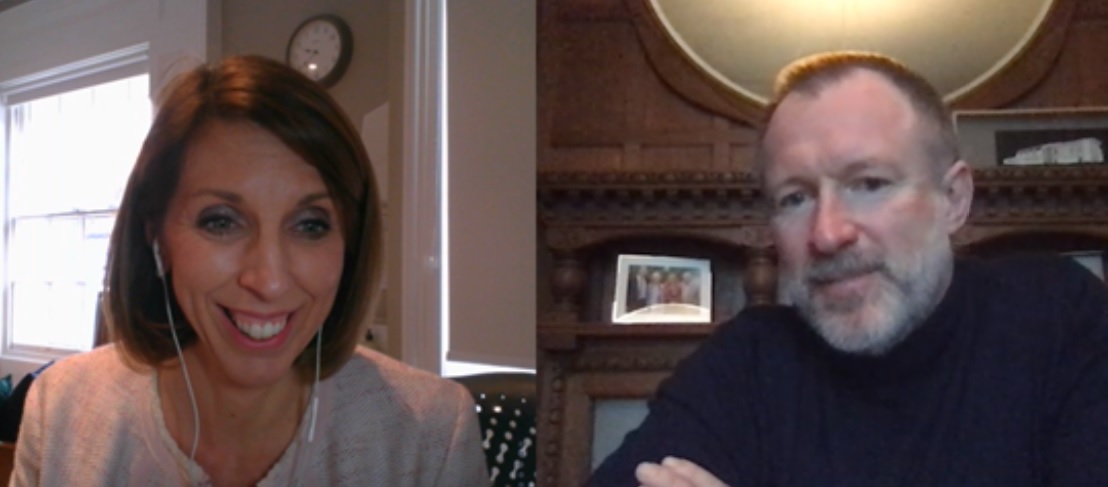
Chris Oglesby is the chief executive of Bruntwood, which remains a family-owned and run company founded on a belief that its success comes from the success of its colleagues, customers and the communities in which it operates. He works tirelessly helping cities such as Manchester to thrive in many ways including by improving health inequalities, funding research and by supporting cultural and community initiatives.
Chris talks to Dr Newson about how his wife, Jane, really struggled during her perimenopause and menopause and how difficult it was for him to watch her experience various symptoms. He also speaks openly about his sister, who also found it difficult to receive adequate help and treatment for her menopause.
Dr Newson and Chris explore ways in which menopause in the workplace can be addressed to improve organisations and also about how poor menopause care is a global health problem which urgently needs to be addressed.
Chris Oglesby’s three take home tips for employers:

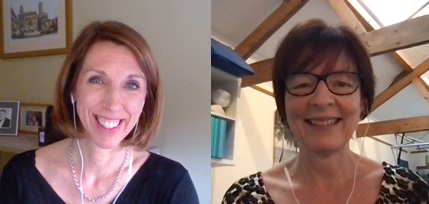
In this episode, Dr Louise Newson is joined by Dinah Siman who is a yoga and Pilates teacher and the founder of Menopause Pilates.
Dinah chats to Dr Newson about the history of Pilates and how the method arrived in the UK with Alan Herdman, and how it is now established as a tried and tested system for functional body work. Dr Newson shares her experience of Pilates during her last pregnancy and talks with Dinah about the huge benefits of muscle strengthening, bone loading, flexibility and proprioception it brings during menopause and beyond, and the focus on breathing and pelvic floor health.
Dinah also talks to Dr Newson about the one-day Menopause Pilates course that she has have created for Pilates teachers and fitness professionals. Dinah has been teaching Pilates to women in the menopausal transition for over 23 years, this combined with her own experience of menopause and passion for sharing menopause education has resulted in this unique one-day course.
Dinah’s three take home tips:
Follow Dinah on Instagram: @menopausepilates
Email: dinahsiman@gmail.com


In this episode, Dr Louise Newson talks to Kate Halfpenny, who was a celebrity stylist and designer for over 20 years. Kate now has a globally successful, British-made bridal brand, Halfpenny London, which she launched in early 2000.
Kate had her first and only child, Sylvester, at 40 and talks to Dr Newson about how her perimenopausal symptoms started a year or two after that. Now 45 and six months into her body identical HRT regime from Dr Newson and Newson Health, she has started to feel like the powerhouse she once was, managing to keep a few balls in the air again and not struggling as much to communicate and be the business woman/mother/wife/friend she knew she could be.
Kate Halfpenny’s three take home tips and signs that you may have low hormone levels:

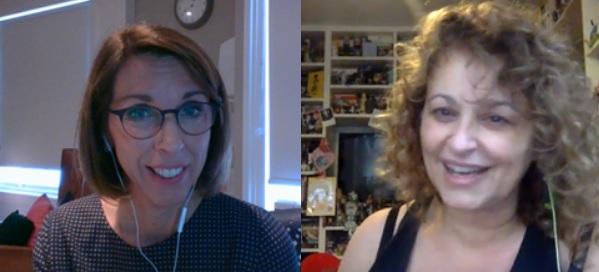
In this episode, Dr Louise Newson is joined by Nadia Sawalha. Nadia is a well-known British actress and TV presenter and has been part of Loose Women from the outset. While talking to Dr Newson, Nadia is very open and candid about her menopause experience and how frightened she was. She talks about how she has always been a very positive and outgoing person and found herself becoming very negative and argumentative. She has had some very dark thoughts which, understandably, were very scary to her.
Nadia talks to Dr Newson about how little she knew about menopause in the past and how important it is that women have access to evidence-based information and treatment. Nadia is determined to talk more openly going forwards to educate more women about the symptoms and also the numerous health risks associated with low hormone levels.
Nadia Sawalha’s three take home tips:

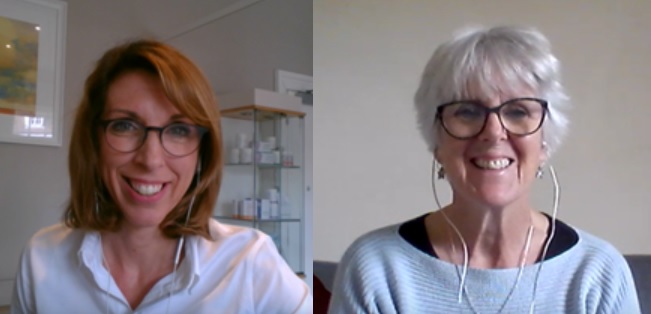
In this episode, Dr Louise Newson is joined by Lavinia Winch, Ambassador for YES organic vaginal moisturisers and lubricants and a patient representative for all aspects of women’s gynaecological health, but especially for menopausal urogenital symptoms.
Lavinia shares her story and talks openly about the 30 years of misdiagnosed vaginal and vulval symptoms which were eventually resolved by choosing responsibly formulated lubricants and vaginal moisturisers. Also touched on is Lavinia’s diagnosis of endometrial cancer, and the importance of recognising the signs and symptoms, of which the most common is post-menopausal bleeding.
Dr Newson and Lavinia discuss the lack of progress since 2000 in terms of healthcare professionals’ training and treatment of menopausal symptoms, both for vaginal health and for the wider range of symptoms.
The difference between bio-identical unregulated hormone therapy and the regulated body identical HRT available on the NHS is another topic covered, and the importance of women using self-knowledge and seeking evidence-based information in order to work collaboratively with GPs to reach individualised solutions.
Lavinia’s three take home tips:

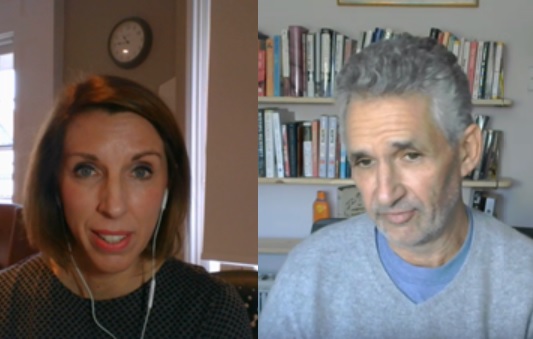
Tim Spector is a Professor of genetic epidemiology at King’s College in London and also co-founder of Zoe. In this podcast, Dr Louise Newson talks to Tim about his newly published book, Spoon-Fed. This ground-breaking and informative book really leads the reader to question their current diet and their relationship with food.
Dr Newson and Tim discuss the importance of gut health and gut biodiversity, in particular with respect to our mental and physical health. Many diseases could be prevented by having the right knowledge of food and cooking from scratch rather than eating processed foods. They also talk about simple ways to improve health and nutrition. We are all individuals and our way of eating can be individualised to optimise our health.
Tim Spector’s three take home tips:
Click here to find out more about Tim’s new book ‘Spoon-Fed’
Find Tim on Instagram: @tim.spector
Twitter: @timspector

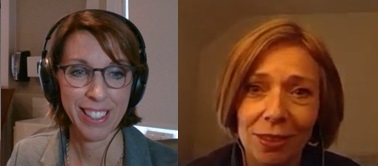
Dr Louise Newson is delighted to welcome Victoria Duddles, solicitor and Principal Associate at Weightmans LLP. Dr Newson and Victoria Duddles first met when they were both guest speakers at a Birmingham CIPD event all about menopause in the workplace.
In this podcast, Victoria talks with Dr Newson about the employment law implications for employers when managing and supporting women in the workplace who are going through the menopause and in particular how the Equality Act 2010 may apply.
Victoria Duddles’ three take home tips for employers:
Instagram: @weightmans_law

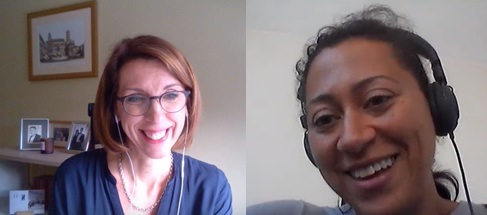
In this episode, Dr Louise Newson is joined by Dr Rebecca Gibbs, an Obstetrics and Gynaecological Consultant at The Royal Free Hospital in London. Dr Gibbs is also an ambassador for the Daisy Network, a charity dedicated to providing information and support to women diagnosed with premature ovarian insufficiency.
In this podcast, Dr Gibbs and Dr Newson have an in-depth conversation about the challenges of being diagnosed with premature ovarian insufficiency (premature menopause) whilst going through fertility treatment. They also discuss the reality of menopause education for gynaecologists in the UK. and why it’s so important that women take their HRT when diagnosed with the menopause younger than expected.
Dr Rebecca Gibbs’ three take home tips for women dealing with POI:
Find out more about The Daisy Network: www.daisynetwork.org

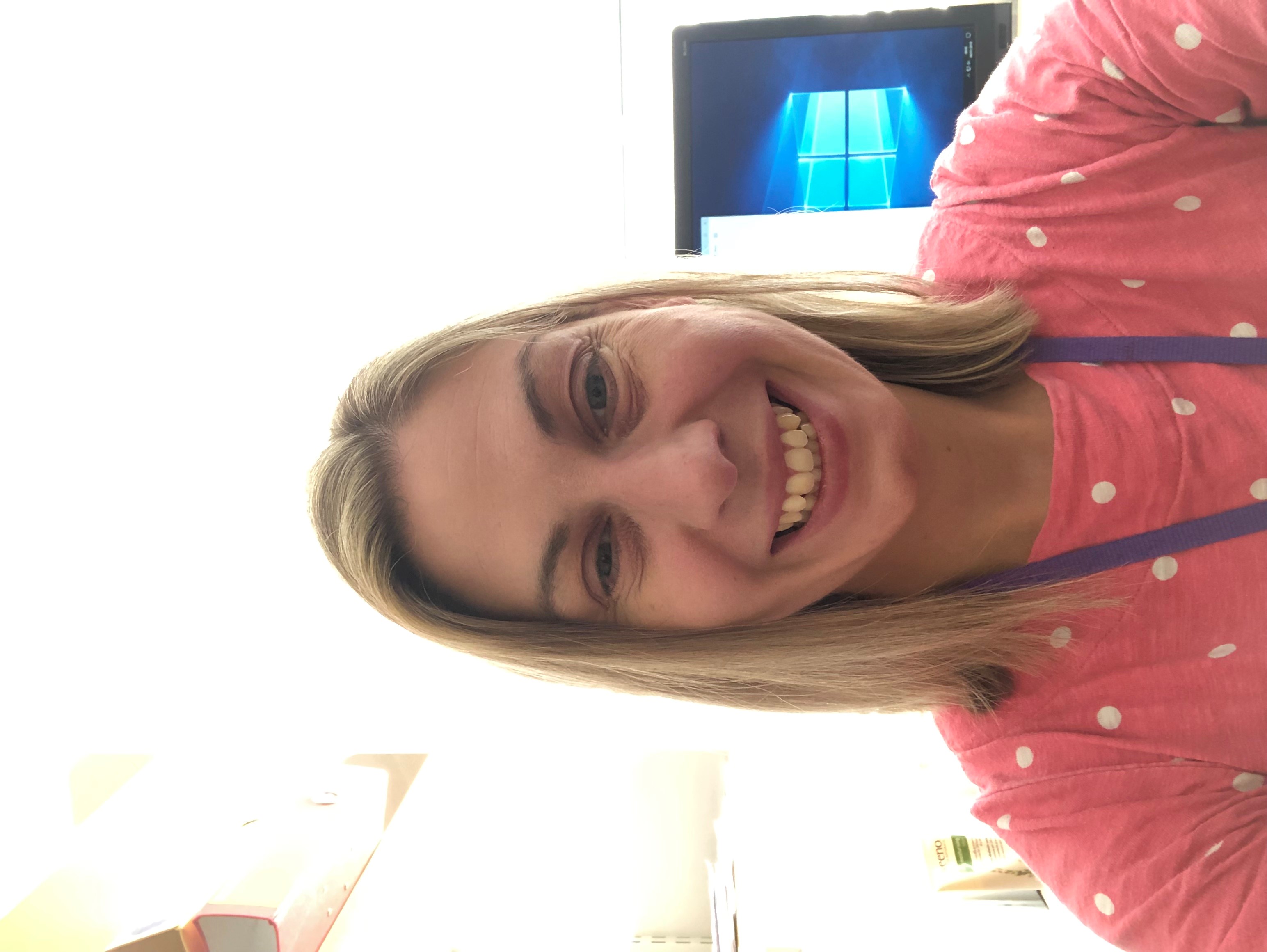
In this episode of the Newson Health podcast series, Dr Louise Newson is joined by Dr Sarah Hillman, a GP and clinical lecturer in Primary Care at the University of Warwick.
Sarah talks about a piece of research she has recently published that looks at HRT prescriptions in England. The research shows that women in deprived areas are less likely to be prescribed HRT and Sarah talks to Dr Newson about why this matters.
Sarah and Dr Newson also discuss a menopause event at Warwick University and how important engagement is within women’s workplaces.
Dr Sarah Hillman’s three take home tips:

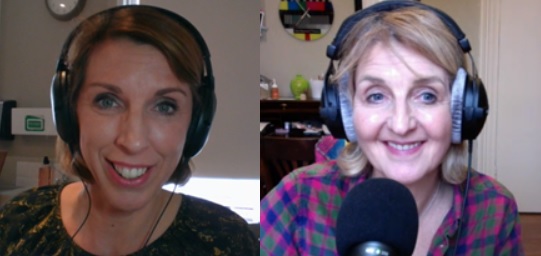
In this podcast, Dr Louise Newson is joined by Kaye Adams, a radio and television presenter and regular panellist on ITV’s Loose Women. Kaye has recently co-authored the book called Still Hot in which 42 women have written about their own menopause experiences.
Kaye and Dr Newson talk about the ways journalists and the media obtain their information and how, for many years, any information they have obtained about the menopause has been incorrect. They also discuss how the incorrect prescribing of antidepressants is so common for menopausal women and how this can be reduced in the future.
Kaye talks openly about her own menopause experience and the reservations she had. She talks about how she came to consider HRT because she’s the type of person who needs to read and ascertain the research, which she found to be so different from what she, like many women, had wrongly been told in the past.
Kaye’s three take home tips:
Follow Kaye on Instagram: @kayeadamsofficial
Twitter: @kayeadams
Facebook: @kayeadamsprogramme

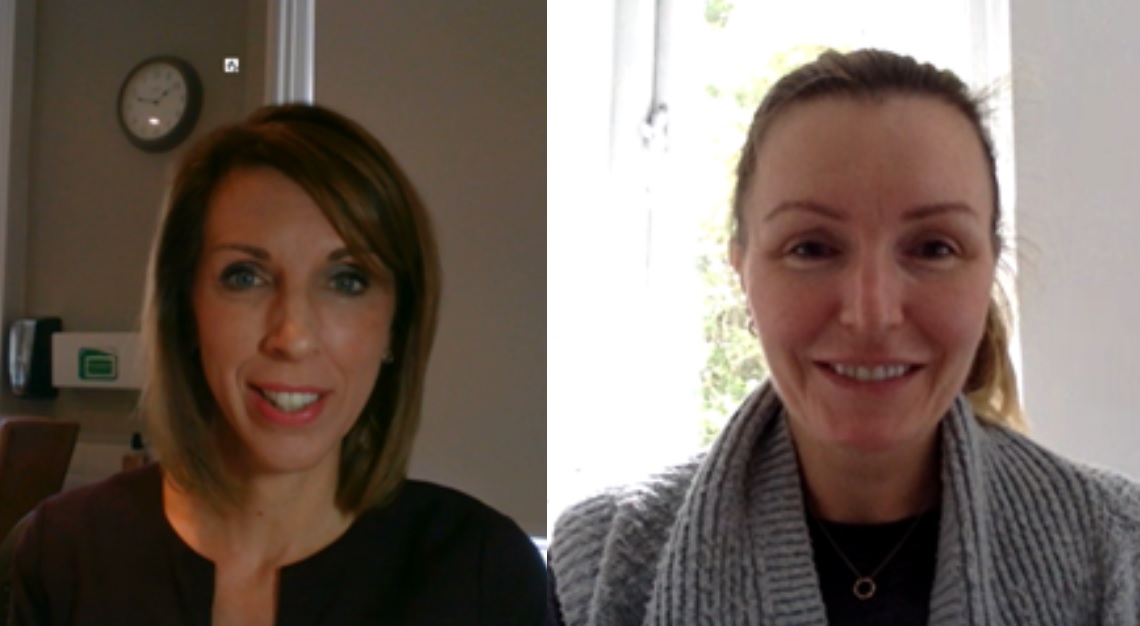
In this podcast, Dr Louise Newson chats with Vanessa Barnes, fellow trustee and Chief Executive of their newly formed Menopause Charity.
Vanessa describes in detail her own menopause journey and her experiences of being perimenopausal and how she came to first meet Louise when trying to find treatment for herself over three years ago. Louise and Vanessa discuss the lack of information, knowledge and awareness surrounding the perimenopause and menopause and the apparent stigma attached to it. There is a very real need for this to be addressed and Louise and Vanessa explain how The Menopause Charity can help to do this.
Louise and Vanessa also discuss the wider impact of oestrogen deficiency and the general lack of information and knowledge about the very vital part that oestrogen plays in women’s health. The need for a menopause charity to be set up is something that Louise has been thinking about for some time and now, thanks to the collaboration and efforts from a wide variety of people who are working on The Menopause Charity team, Louise and Vanessa are hugely excited to be in the position where they have now received official registration as a charity from the Charity Commission! The whole team are looking forward to the future and getting the funding needed to get The Menopause Charity website built and to start the process of helping more women to get the support, information and help that they deserve.
Click here to find out more about The Menopause Charity
Vanessa’s take home tips about why The Menopause Charity is essential:


In this episode, Dr Louise Newson talks to Claire Sanderson, the editor-in-chief for Women’s Health magazine. Claire talks openly about her mental health and the struggles she has faced in the past in the past. She also talks with Dr Newson about the perimenopause and how so many women are incorrectly offered or given antidepressants for their low mood – a symptom that usually occurs as a result of changing hormone levels.
Dr Newson and Claire discuss how HRT can be beneficial for so many women and they also explore the benefits of regular exercise and nutrition. Claire talks about ways that celebrities can help to empower women with knowledge about their perimenopause and menopause and give them confidence that taking HRT is not something to be scared of. Together, they also talk about sexuality and body confidence issues related to low hormone levels.
Claire Sanderson’s three take home tips:
Find Claire on Instagram: @clairesanderson
Twitter: @c_l_sanderson


In this podcast released on World Osteoporosis Day, Dr Louise Newson welcomes Julia Thomson, who manages the Royal Osteoporosis Society’s Specialist Nurses Helpline.
Together, they discuss what exactly osteoporosis is and identify some of the major risk factors of osteoporosis. Julia and Dr Newson also talk about the various treatments options available for people at high risk of fracture; including hormonal therapies and non hormonal treatments such as bisphosphonates. DEXA scans are also an effective method of diagnosing osteoporosis and Julia discusses this along with the importance of a well balanced, calcium rich diet and regular exercise throughout life.
Dr Newson chats to Julia about her work at The Royal Osteoporosis Society and what the charity can offer people with concerns about their bone health and World Osteoporosis Day.
Julia’s three take home tips:


In this podcast, Dr Louise Newson is joined by Dr Gregory Monk, a newly qualified GP.
Gregory chats to Dr Newson about his experience dealing with the menopause so far in his career and during his training. They go on to discuss Gregory’s perspective of the menopause how this has changed during his time as a GP – particularly his perception of HRT and how Dr Newson’s work has been a key factor in this.
Dr Newson and Gregory also talk about the importance of GPs learning and understanding more about the menopause and the need for HRT to be considered a low risk treatment with significant health benefits – rather than a high risk treatment surrounded by negativity and fear. Gregory also stresses that it should not matter whether your doctor is a man or woman; all doctors should be able to offer a good standard of menopause care to women.
Dr Gregory Monk’s three take home tips:

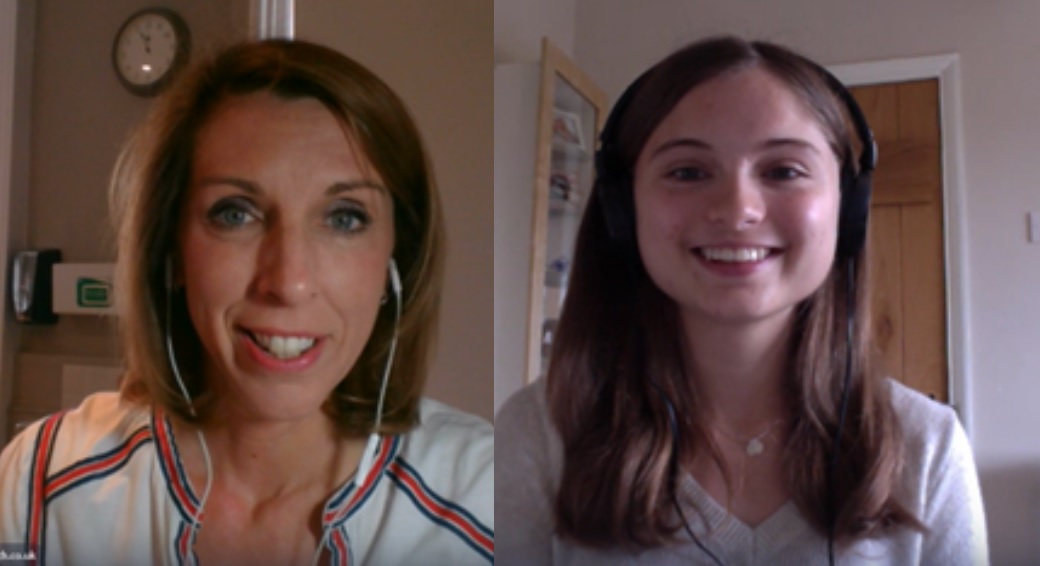
When Ellie Waters was 14 years old, she was diagnosed with a soft tissue cancer that required intensive and lengthy treatment. The interventions saved her life, but they also stopped her ovaries working for good. With little menopause information or support from her medical team, Ellie found herself on a journey of self-discovery and empowerment.
In this episode, Ellie talks to Dr Newson about her story, what it was like going through the menopause at such a young age and how finding the right treatment has turned her life around.
In her own words: 'At first, I was elated at the prospect of no periods, but as time went on, I realised that the menopause is much more than your periods stopping; I realised that it meant a life of suffering with night sweats, joint pain, vaginal atrophy and hot flushes. During a time when I was meant to be happy that I survived cancer, my mental health was spiralling with the burden of the menopause. But, thankfully, I got an appointment with Dr Newson and I am now receiving the HRT that I need. Before, I felt like I was 18 going on 80, but now I feel like superwoman!'
Ellie’s three take home tips:


In this podcast, Dr Louise Newson is talking with Professor James Simon about genitourinary syndrome of the menopause which affects the majority of women after the menopause and can include symptoms such as vaginal discomfort, irritation, dryness and pain during sexual intercourse. However, only the minority of women currently receive treatment and this needs to change.
Treatment with localised oestrogen can be very effective for the majority of women and is very low risk. Other symptoms related to this condition include urinary symptoms and Prof Simon talks with Dr Newson about how common urinary infections and consequent sepsis can be and how this can be avoided by using vaginal oestrogen.
Professor James Simon’s three take home tips:
Find out more about Professor Simon by visiting his website here.

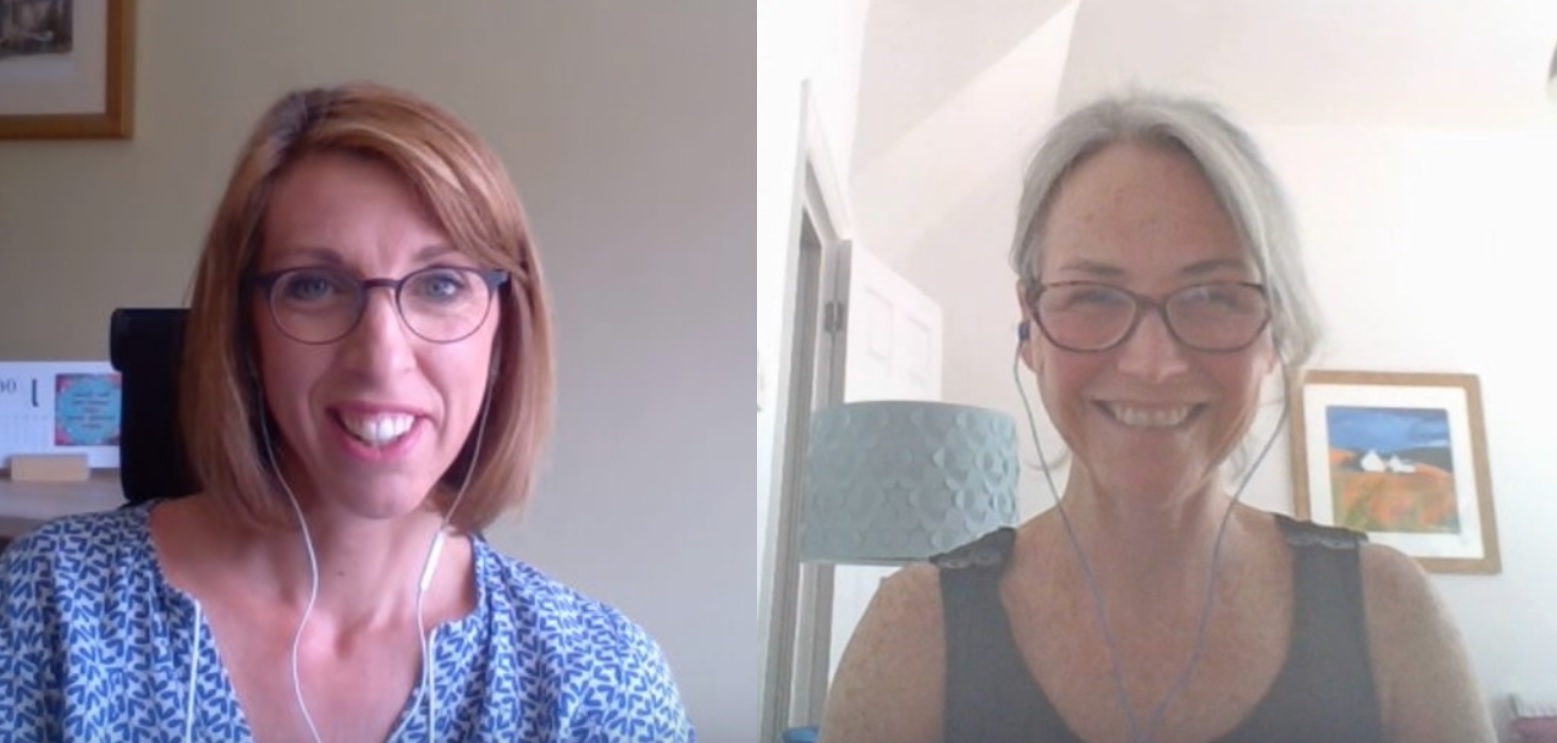
Dr Louise Newson chats to Lindsey Beveridge, nutritional therapist and founder of Recovery Nutrition, in this episode of the Newson Health podcast series. Lindsey talks openly about her recovery from alcohol addiction in her late 40s and how that drove her to study nutritional therapy and then change careers.
Alcohol and sugar are both substances which affect our guts, brain health, as well as every other body system, but it’s hard to remove them as they are both so addictive. Quite often these self-destructive habits escalate in our 40s – a time when we are possibly experiencing bereavement, financial pressures or relationship challenges, as well as experiencing hormonal fluctuations, so we reach for substances that temporarily make us feel better. It’s important to recognise patterns of destructive behaviour so we can make changes.
Breaking habits and making changes require commitment and hard work, but also a degree of self-compassion and Lindsey and Dr Newson share some tools to help with this.
Lindsey Beveridge’s three take home tips:
Find Lindsey on Instagram: @recoverynutrition

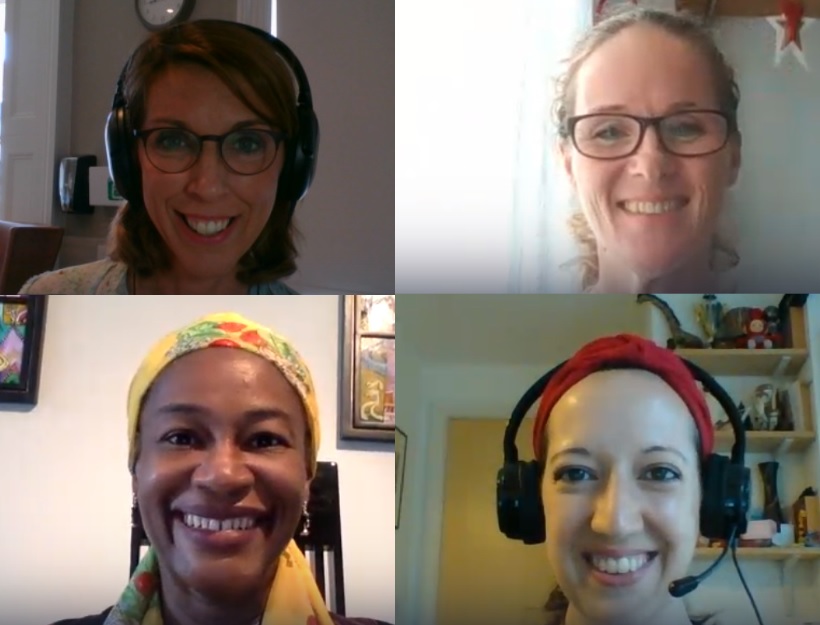
In this podcast, Dr Louise Newson is speaking with Sophie Strachan, director of Sophia Forum, Dr Nneka Nwokolo, honorary HIV clinician and menopause specialist, and Dr Jacqui Stevenson, researcher and advocate for Sophia Forum. Together, they talk about the charity Sophia Forum and their We Are Still Here campaign which is calling for:
Dr Jacqui Stevenson recently carried out research exploring women’s experiences of ageing with HIV in London. Many of these women were experiencing menopausal symptoms yet were often receiving inadequate advice and help. Understandably, many women were worried that their symptoms were related to their HIV or their treatment and a large number of women expressed frustration in not receiving the right support or treatment. The expert guests in this podcast discuss how important it is for women to receive education about potential symptoms of the menopause and also health risks related to their low hormones. Jacqui talks in more detail about her research and ways of potentially improving access to evidence-based information worldwide to women living with HIV.
Sophie Strachan, Dr Nneke Nwokolo and Dr Jacqui Stevenson’s three take home messages:
Find out more about Sophia Forum at:
www.instagram.com/sophiaforum/
Click here for more information about the We Are Still Here campaign.

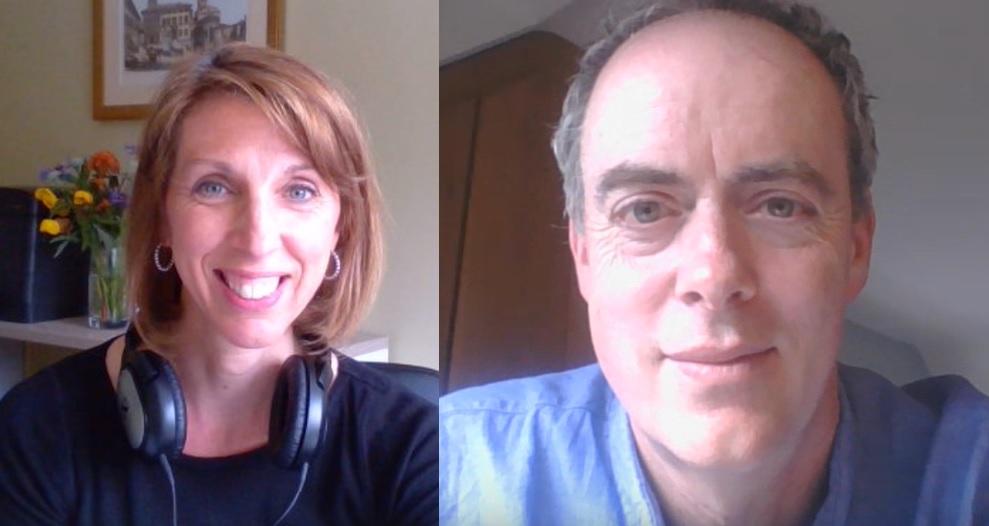
In this podcast, Dr Louise Newson is speaking with Jon Hughes, a gynaecologist who specialises in fertility and endometriosis. Jon and Louise discuss the various reasons why women may have reduced fertility, including women who have an early menopause or premature ovarian insufficiency (POI). Jon talks about his work and details the possible ways that fertility can be improved.
Jon is the lead clinician for Worcestershire Fertility, which is part of Oxford Fertility. Oxford Fertility is part of TFP, with 37 fertility clinics across the UK and Europe.
Jon Hughes’ three take home tips for young women with potential fertility issues:

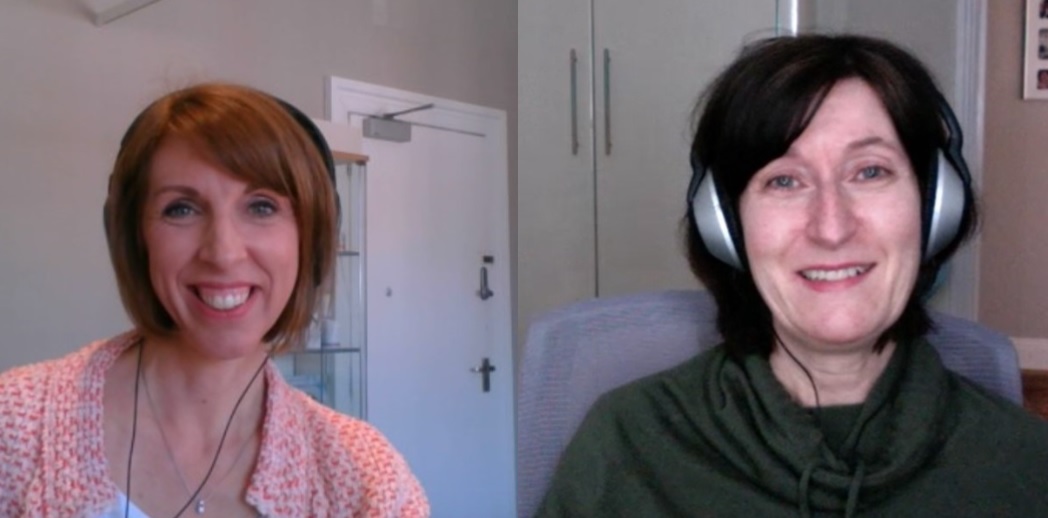
In episode 63 of the Newson Health podcast series, Dr Louise Newson is joined by Dr Stephanie Goodwin, a London-based GP, menopause specialist and specialist in Psychosexual medicine.
Together, Dr Newson and Dr Goodwin discuss the possible consequences of cancer treatment on women’s sex lives. Often sex isn’t discussed at the outset of treatment and it isn’t until much later that women have the opportunity to get advice.
Dr Goodwin also speaks about vaginal changes during the menopause and the importance of intimacy and keeping channels of communication open with your partner if sex becomes difficult during this time. Vaginal dryness is a very common problem that is easy to treat so don’t be afraid to seek out advice.
Dr Stephanie Goodwin’s three take home tips:
Find Dr Goodwin on Instagram: @drstephaniegoodwin

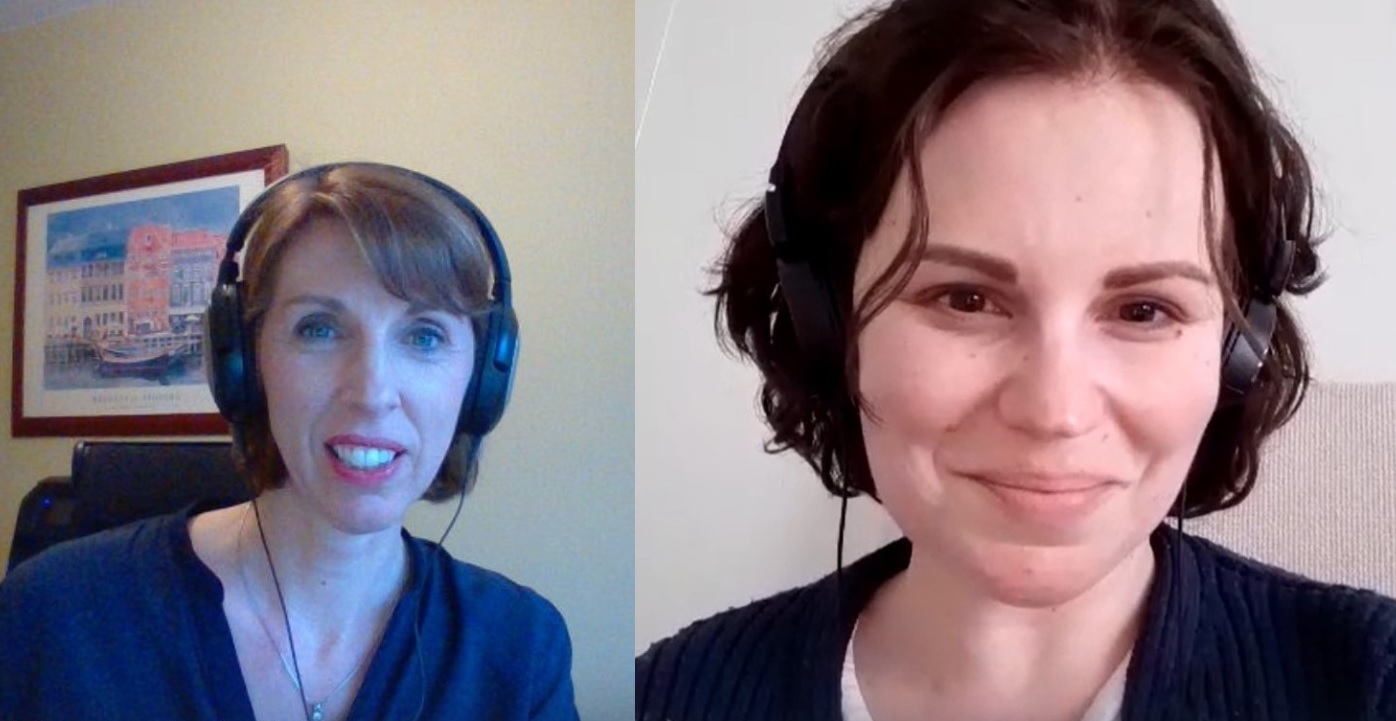
In this podcast, Dr Louise Newson chats to Dr Philippa Kaye – GP, journalist and author. Dr Kaye has just released a new book titled The M Word: Everything You Need to Know About the Menopause and she talks to Dr Newson all about it and explains why she decided to write a book about this area of a woman’s life.
Dr Newson and Dr Kaye discuss a number of women’s health topics in this informative podcast, including safe sex, STD prevention and contraception around the time of the menopause and perimenopause – when you can stop, when you need protection and the different options available.
Dr Newson also chats to Dr Kaye about the taboo surrounding women’s health in general and why it’s important that we change the narrative surrounding the menopause.
Dr Philippa Kaye’s three take home tips about contraception and menopause:
The M Word: Everything You Need to Know About the Menopause by Dr Philippa Kaye is available on Amazon and waterstones.com, as well as in most bookstores.
Find Dr Kaye on Twitter: @drphilippakaye
Instagram: @drphilippakaye

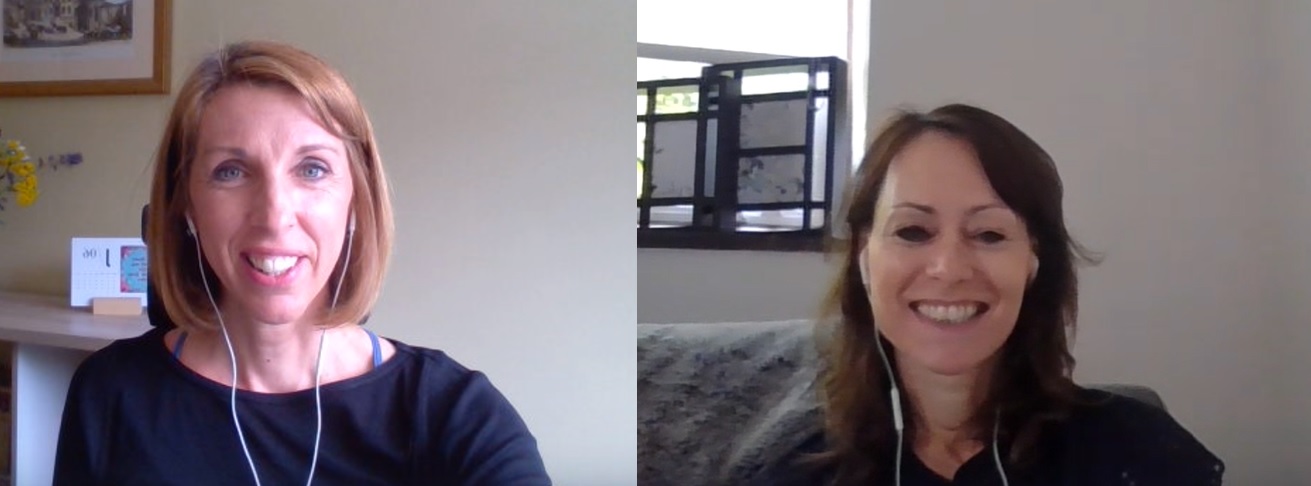
In this episode, Dr Louise Newson is joined by Lindsey Lester who is a pharmacist with special interest in the menopause and founder of The Hormone Pharmacist.
Lindsey set up The Hormone Pharmacist, after much encouragement from Dr Newson, to provide affordable expert menopause advice, which enables women to make an informed choice about the treatment they would like. Lindsey offers a 45 minute consultation which covers the risks and benefits of the treatments available, as well as general health advice which ultimately saves the time of women and their GPs and ensures they receive the safest, evidence based options.
In this podcast, Lindsey and Dr Newson discuss the large number of women aged 40+ that are prescribed antidepressants and also older women receiving antibiotics repeatedly for urinary tract infections, both of which are often menopause related.
Lindsey is a member of The British Menopause Society and she talks to Dr Newson about why it’s so important that women make sure the health professional they speak to has undertaken specific training in menopause. In many cases, even a GP or Gynaecologist might not have had enough training to give the right information or treatment.
Lindsey Lester’s three take home tips:
Find Lindsey on Facebook: @thehormonepharmacistUK
Instagram: @thehormonepharmacistUK

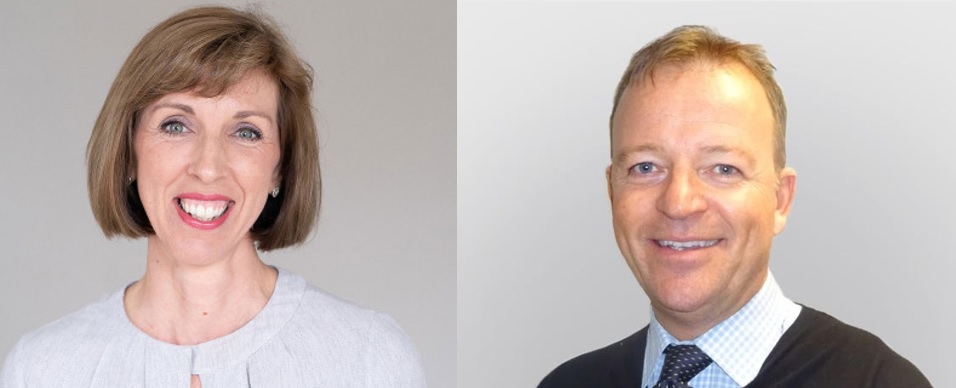
Dr Mark Coombe is the educational director of Fourteen Fish, a UK based company specialising in medical appraisals. They provide education for over 40,000 GPs and healthcare professionals in the UK.

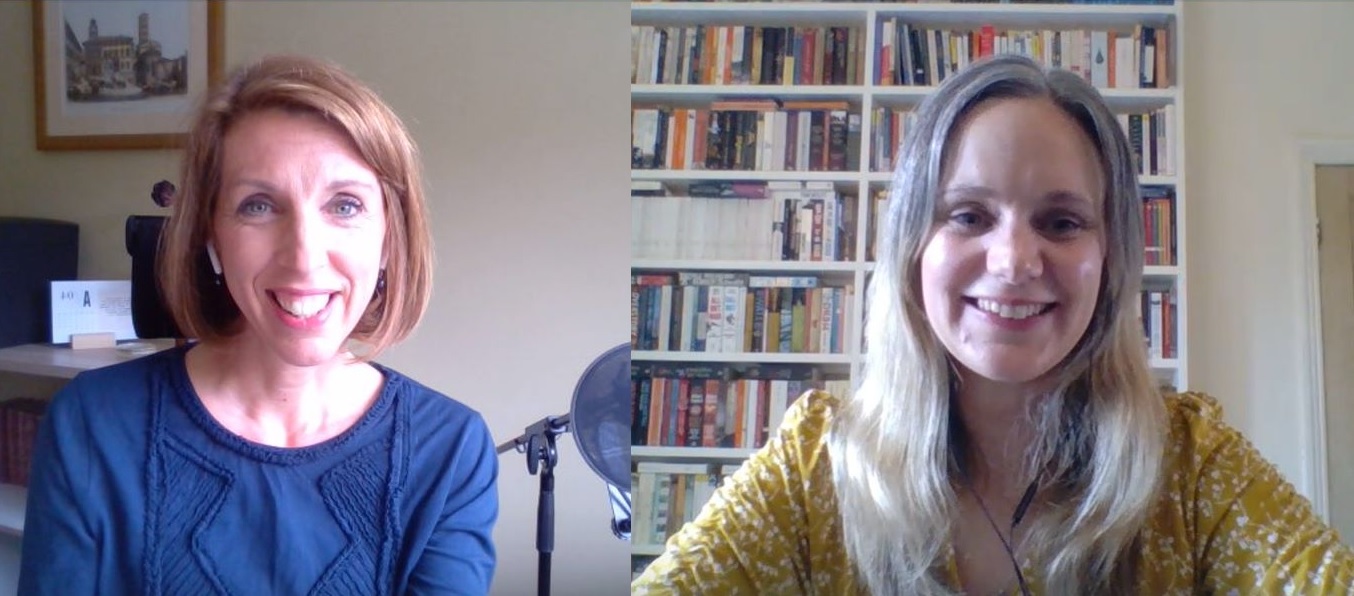
In this episode, Dr Louise Newson is joined by Dr Hannah Short, who is a GP and menopause specialist. She also has a particular interest in premenstrual syndrome (PMS) and premenstrual dysphoric disorder (PMDD) which is very common yet not well managed. Many women need individualised advice and treatment which is often a combination of lifestyle changes and taking hormones.
Hannah openly talks about her own experience of having a surgical menopause when she was younger. She talks to Dr Newson about ways of improving awareness of this condition so women do not have to suffer both physically and mentally as a result of inadequate support and treatment.
Dr Hannah Short’s three take home tips:
Find Hannah on Instagram: @dr.hannah.short

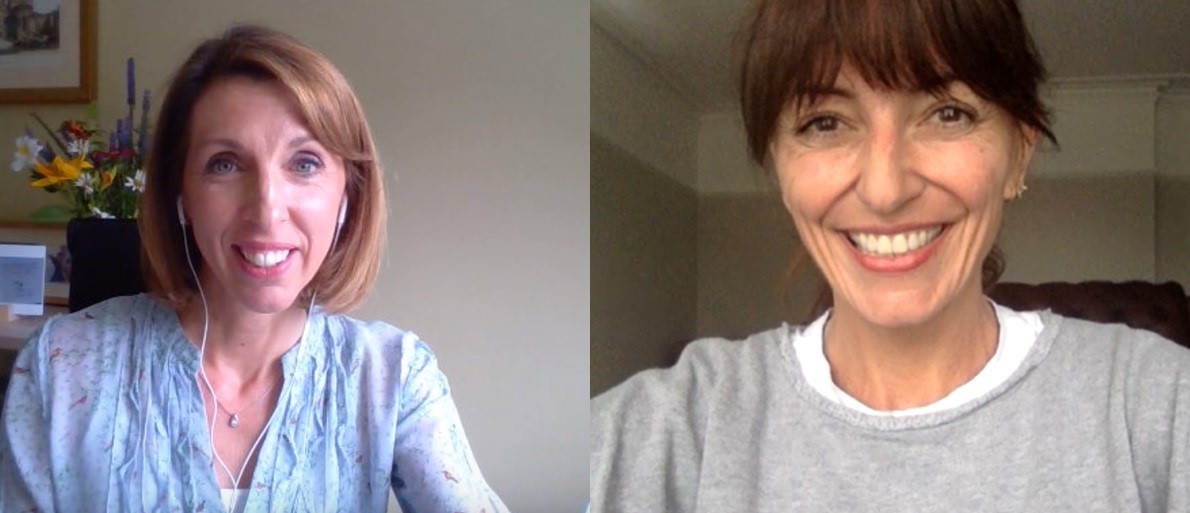
In this podcast, Dr Louise Newson chats to one of Britain’s best loved TV presenters, Davina McCall. Davina talks openly and honestly about her own menopause experience and how she had no idea that she might start to experience symptoms when she was just 44.
Davina and Louise talk extensively about the perception of HRT in the media, how women are often needlessly scared and ashamed when they hear those three letters and why it’s so important that this starts to change. It’s essential that women have access to evidence-based menopause information – we all have the right to make informed choices about our own care and treatment.
Davina McCall’s three take home tips:
Find Davina on Facebook: @DavinaMccall
Twitter: @ThisIsDavina
Instagram: @davinamccall

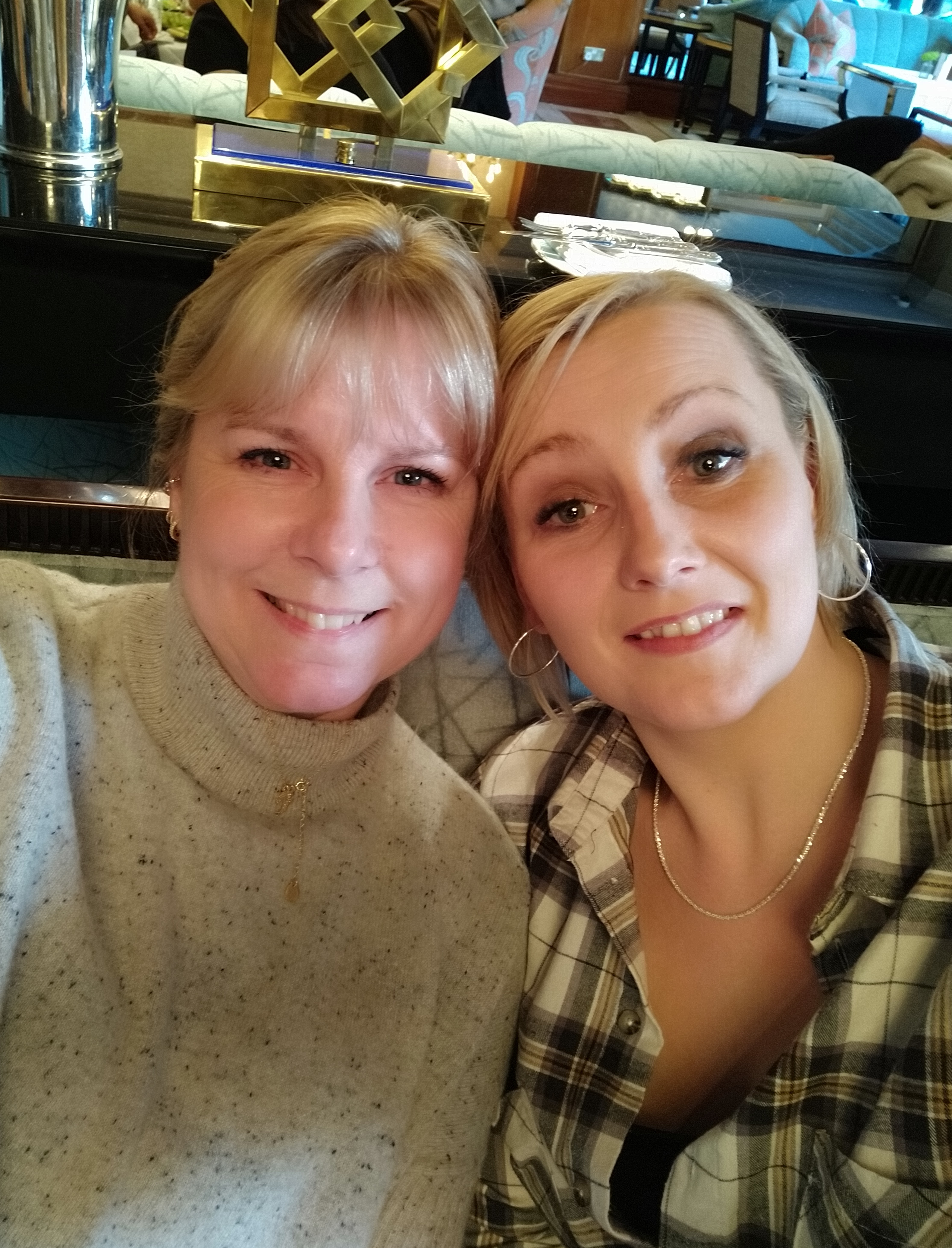
The Irish Menopause was set up by Sallyanne Brady and Claire Peel – two ladies who suffered horrendously with their own menopause symptoms and met in an online support group. Ireland was lacking in knowledge, support and evidence based information, for women in particular, so they founded The Irish Menopause in April 2019 and the group now has 2700 members! Sallyanne and Claire chat to Dr Newson about the stories they hear day after day that are heartbreaking and unnecessary and how they are striving for change in Ireland.
Sallyanne’s three take home tips for women in Ireland:
Claire’s three take home tips on how women can help themselves:
Find The Irish Menopause on Instagram: @theirish_menopause

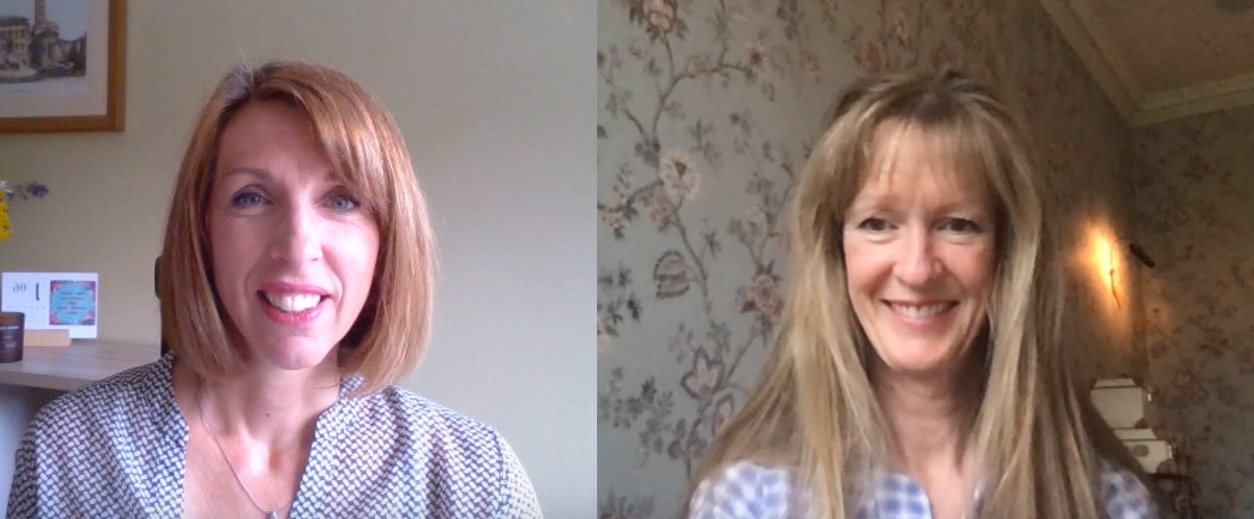
In this podcast, Dr Louise Newson is talking with Jane Oglesby, whom she first met at Manchester University when they were both medical students together. Dr Newson and Jane then reconnected a few years ago when she visited the Newson Health clinic as she had been really struggling with menopausal symptoms and was unable to receive the right help and treatment. Jane now works a trustee for The Oglesby Charitable Trust and she is passionate about tackling health inequalities, amongst other issues, and she is also a Director of both Focused Care and the Shared Health Foundation. Jane has kindly personally donated money to enable us to develop and produce a brand new menopause app called Balance which has just been launched. The aim of this app is to provide evidence based and non-biased information about the perimenopause and menopause to as many women as possible worldwide. Dr Newson and her team have been working hard for the past year with the most incredible team at Magnetic North in Manchester and is really excited to announce that it is now available to download.
Jane Oglesby’s three favourite things about Balance:


in this podcast, Dr Louise Newson is joined by online personal trainer, life coach and corporate wellbeing trainer Janette Cardy. Janette is a GB athlete and founder of Janette Cardy Fitness and she chats to Dr Newson about the physical and mental effects of exercise. Dr Newson and Janette also discuss how to find the right exercise programme for you and they share some helpful tips on how to build regular exercise into your daily life.
Janette Cardy’s three take home tips:
Find Janette on Instagram: @janettecardyfitness
Facebook: @JanetteCardyFitness

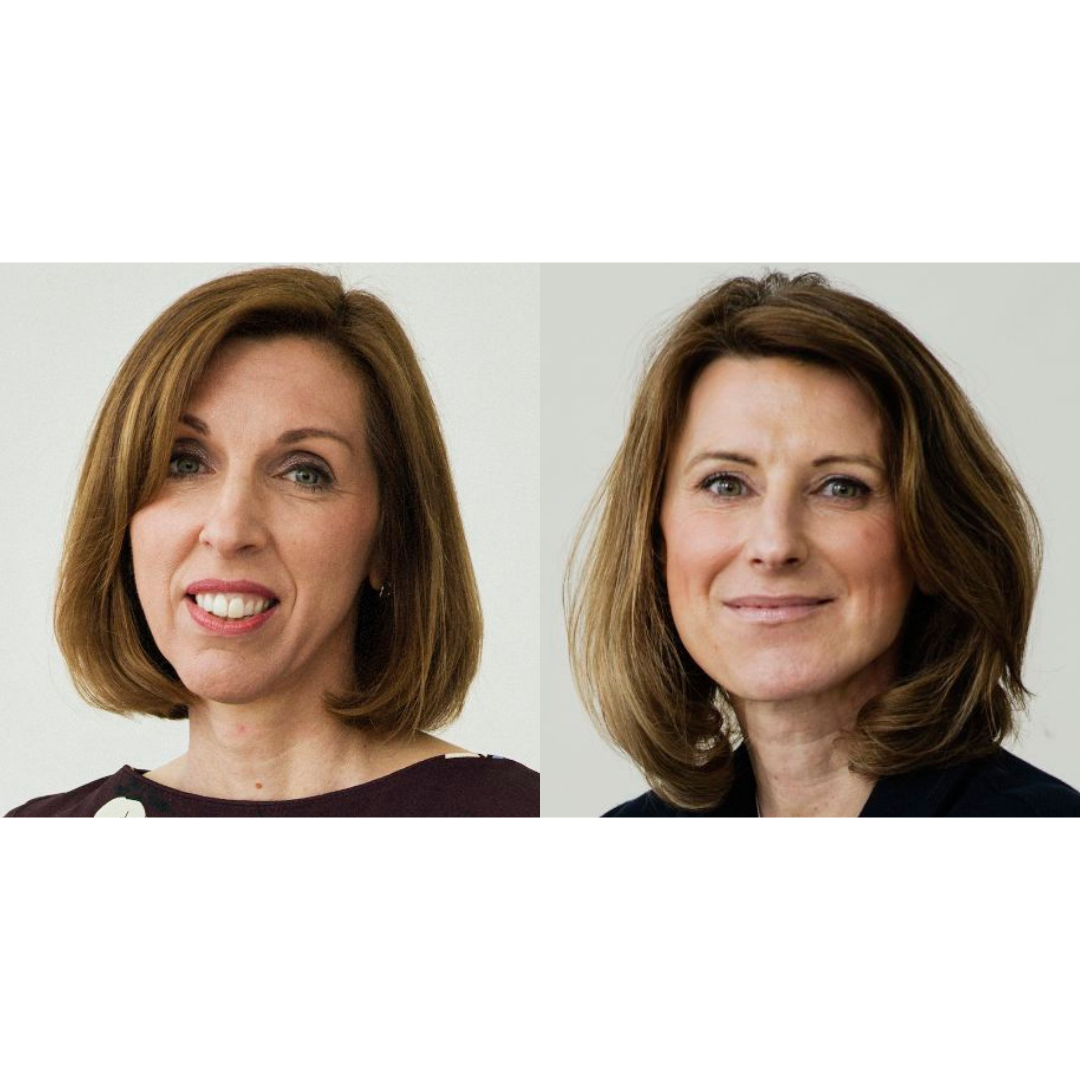
In this podcast, Dr Louise Newson chats to friend and colleague, Dr Rebecca Lewis and together they talk all about hormone replacement therapy (HRT). They discuss the different types and ways of taking HRT, as well as the advantages of various preparations and different types of progestogens. Dr Newson and Dr Lewis also detail the numerous benefits of taking HRT and the possible risks. It is very important that women receive individualised care and treatment regarding their perimenopause and menopause and that they receive the right dose and type of HRT for them. Many women often find they have to try several different doses before they optimise how they are feeling.
Dr Rebecca Lewis’ three take home tips:
Find Dr Rebecca Lewis on Instagram: @dr.rebecca.lewis

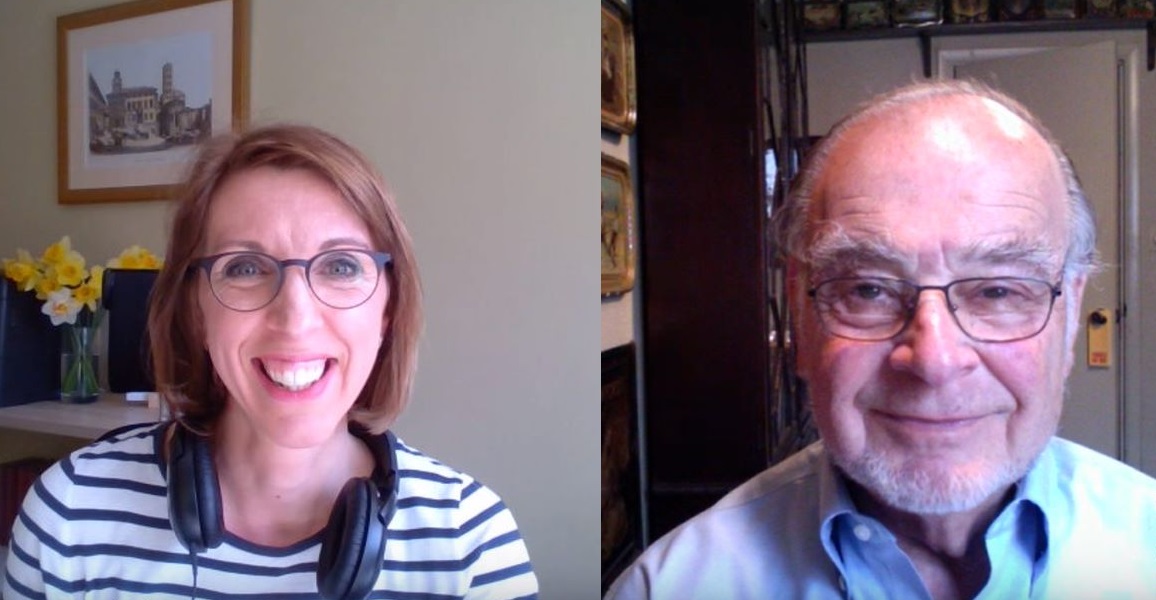
In this podcast, Dr Louise Newson talks to Professor Philip Sarrel, Professor of Gynaecology, Obstetrics and Reproductive Sciences and also Professor of Psychiatry at Yale University.
Dr Newson and Prof Sarrel discuss the importance of hormone replacement, not only to improve symptoms but also for disease prevention as Prof Sarrel talks about the increased risk of heart disease in women who have had an early menopause. He is the Founder and President of the Advancing Health After Hysterectomy (AHAH) Foundation, an organisation that focuses on educating women who have had a hysterectomy by age 60, a total of 15 million women in the USA!
In the 1990s, around 80% of women received HRT following a hysterectomy and now the figure is around 15%. Yet women who have had a hysterectomy in the past and take HRT actually have a lower future risk of developing breast cancer. Professor Sarrel talks to Dr Newson about how many studies, including the Women’s Health Initiative (WHI), have found that taking HRT can control debilitating symptoms including hot flushes, sleep disturbance and fatigue, and reduces the risk of developing conditions such as osteoporosis, atherosclerosis and heart attacks, and vaginal atrophy and sexual dysfunction.
Professor Sarrel talks about menopausal symptoms being the 'canary in the coal mine' as ignoring symptoms leads to an increased risk of many diseases including heart disease and osteoporosis. The financial costs of these diseases is huge and a new article in the Menopause Journal has reported consequent medical expenditures for five of the diseases which reduced when women age 50 to 59 take HRT – coronary heart disease, breast cancer, bowel cancer, hip fracture, and stroke. When the costs for all of these conditions have been added together the expenditure consequences for untreated vasomotor symptoms in the USA in a single year is estimated in billions of dollars. In addition, around 20% of Medicare dollars in the USA is spent on Alzheimer’s disease – which is more common in menopausal women.
Find out more about Professor Sarrel’s research here.
Professor Philip Sarrel’s three take home tips:


In this podcast, Dr Louise Newson is speaking to Professor James Simon, a Clinical Professor of Obstetrics and Gynaecology and Reproductive Endocrinology at George Washington University in Washington DC.
Dr Newson and Prof Simon talk about the Women’s Health Initiative (WHI) study and more specifically about the different types of progestogens and progesterone. He clearly describes and explains how body identical progesterone is the safest to take as well as the benefits women often experience when taking body identical progesterone. Prof Simon also explores and explains the evidence regarding the reported risks of breast cancer with HRT and he and Dr Newson also talk about how important it is that women receive the best care and treatment during their menopausal years.
Prof Simon’s three take home tips:
Find out more about Prof Simon by visiting his website here.

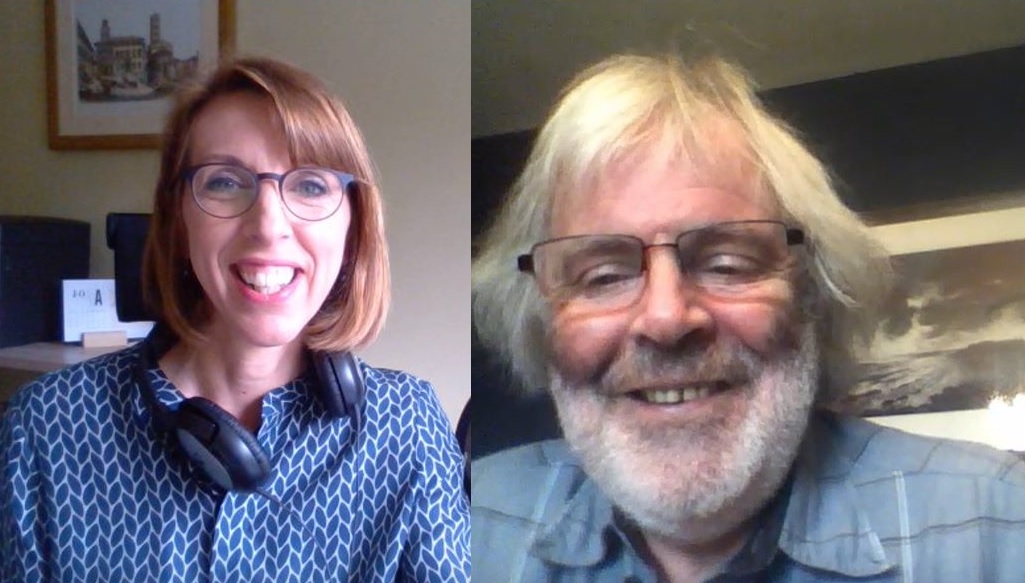
In this podcast, Dr Louise Newson talks to Dr Tony Branson, a consultant oncologist who specialises in giving cancer treatments to women. Dr Branson and Dr Newson discuss the menopause in women who have had breast cancer in the past and the various ways of managing symptoms. Some women also experience menopausal symptoms as a result of their hormone treatment and Dr Branson shares some advice on how to manage this. This podcast also covers what risk means regarding taking HRT with a history of breast cancer and reasons why some women still choose to take HRT despite having breast cancer in their family or having had it themselves in the past.
Dr Tony Branson’s three take home tips:

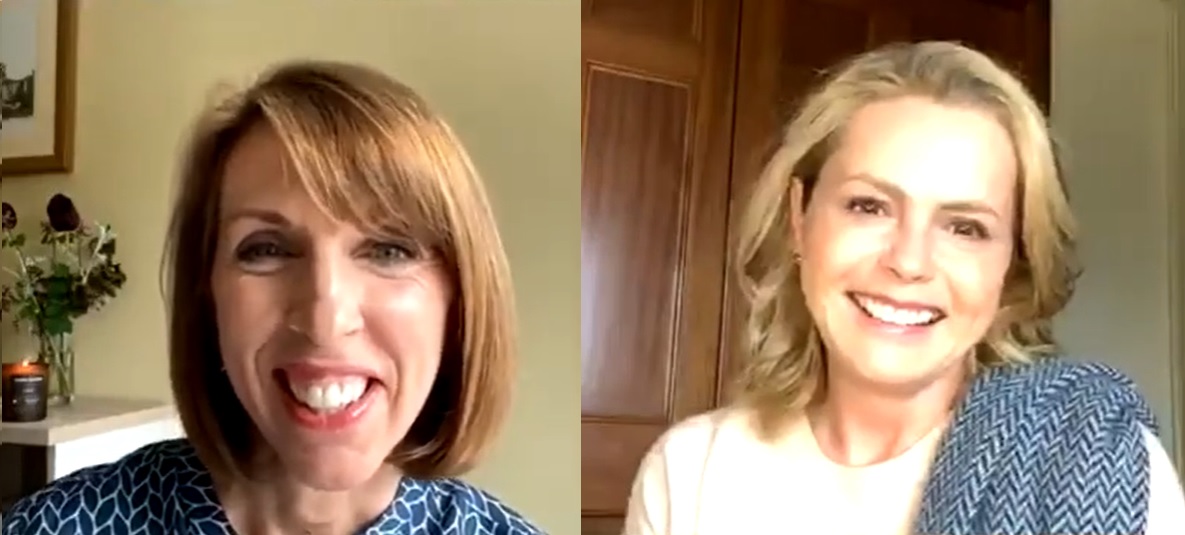
In the 50th episode of the Newson Health podcast series, Dr Louise Newson chats to Liz Earle MBE about how they first met and the work they have done together. Liz is very open and candid about her own menopause experience and admits how little she knew about the perimenopause and menopause before meeting Dr Newson. She is now a great advocate for women receiving evidence-based menopause advice and treatment. Liz and Dr Newson also discuss ways that women can become more empowered and receive the right advice and treatment. Liz works tirelessly to help women to improve their knowledge and is always campaigning for improved menopause care in the future.
Liz Earle’s three take home tips:

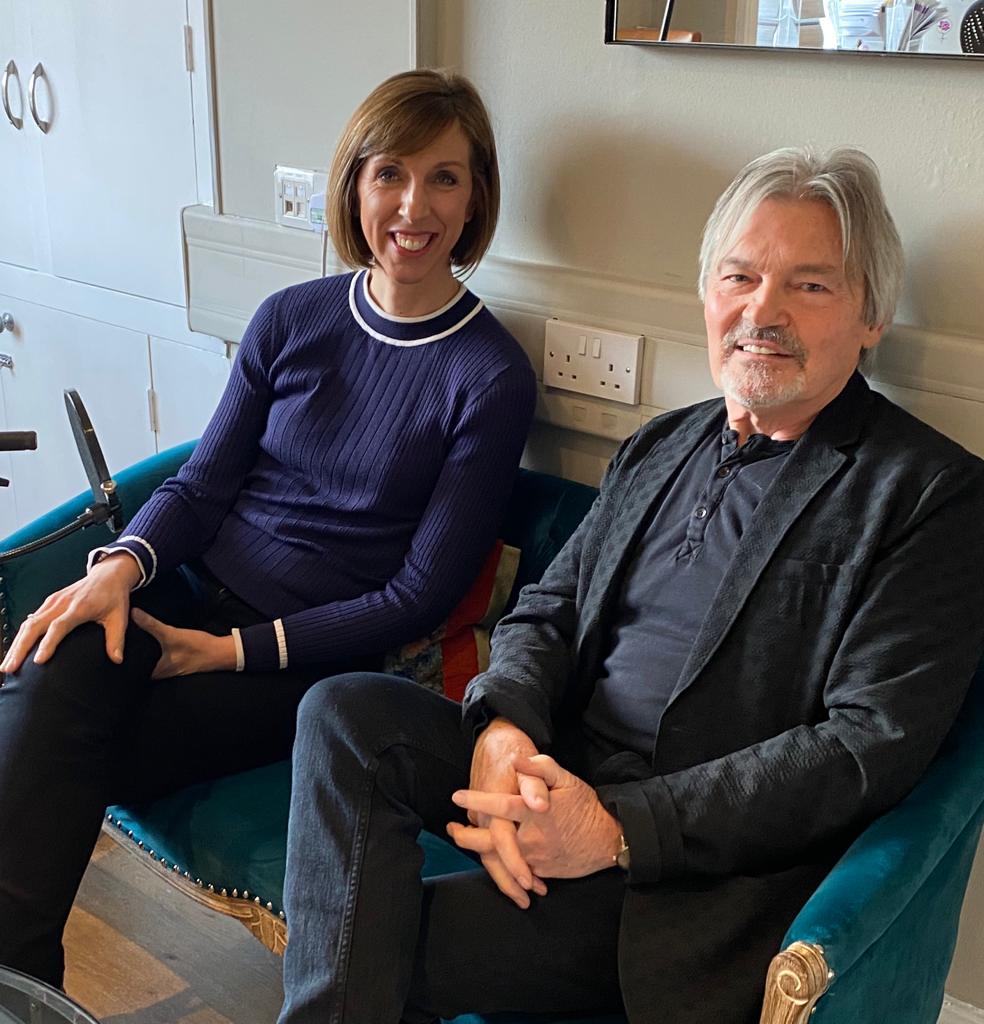
In this podcast, Dr Louise Newson chats to John Stirling, the technical director of Bionutri. John speaks openly about his experience with immunotherapy treatments for his melanoma that was diagnosed when he was in his 20s. This experience started his real interest into disease prevention and healthy living. He is currently writing a book about anti-ageing and talks openly about different ways of slowing the ageing process. Many of these methods include reducing inflammation in the body and improving health. Dr Newson and John talk about the important role diet, exercise, supplements and hormones have when it comes to improving our future health.
John Stirling’s three take home tips for disease prevention and anti-ageing:

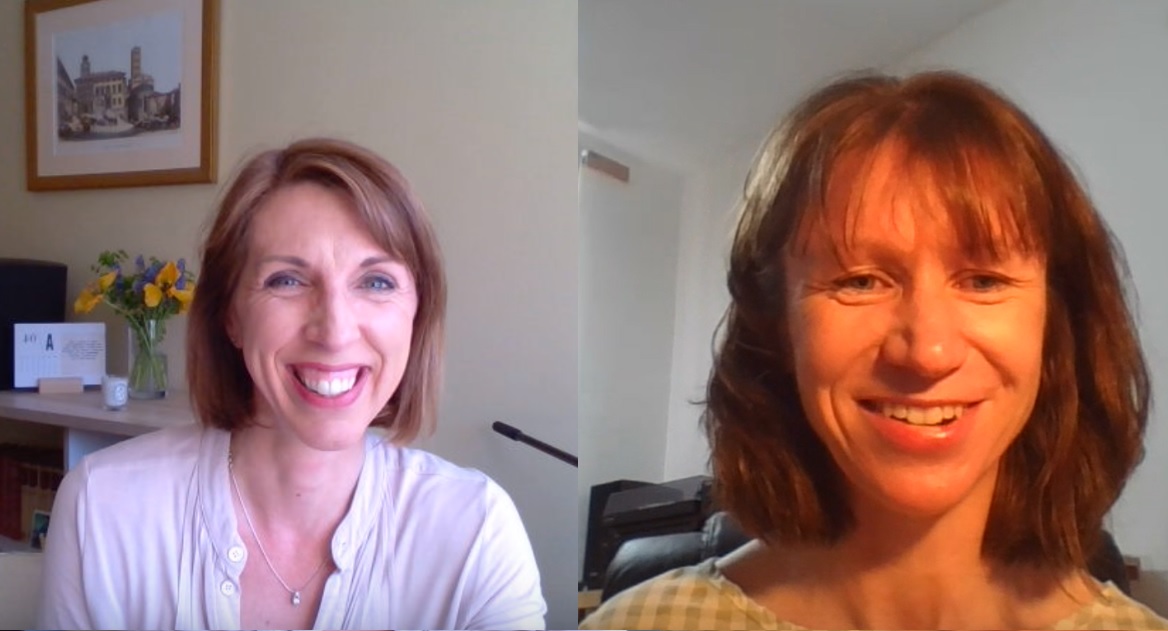
In this podcast, Dr Louise Newson is joined by Dr Zoe Hodson. Zoe has worked as a GP and GP trainer for over 15 years and has encountered many hurdles when trying to deliver menopause care; from lack of training as an undergraduate and postgraduate to being told that there wasn’t any funding for a GP led menopause clinic in her area.
Dr Newson and Zoe discuss many of the frustrations that GPs and their patients face as well as the work that is being done by Newson Health in areas such as GP education and the provision of evidence based, accessible information for women throughout the world.
The team here at Newson Health believe that menopause consultations should be based on shared decision making and they discuss the importance of women and doctors being able to fully understand the long term health benefits and improved quality of life that HRT and holistic menopausal care can deliver.
Dr Zoe Hodson’s three take home tips:


In this podcast, Dr Louise Newson talks to Emma Ellice-Flint, a very knowledgeable nutritionist, all about fermented foods. Emma takes it right back to basics and explains the importance of good gut health and how eating and drinking fermented products can be beneficial for our gut microbes as well as our overall health. Emma and Dr Newson also discuss sauerkraut, kefir and the variety of different ways we can boost our gut microbes – as well as the ways our gut health can worsen due to our diets.
Emma’s three take home tips for better gut health:

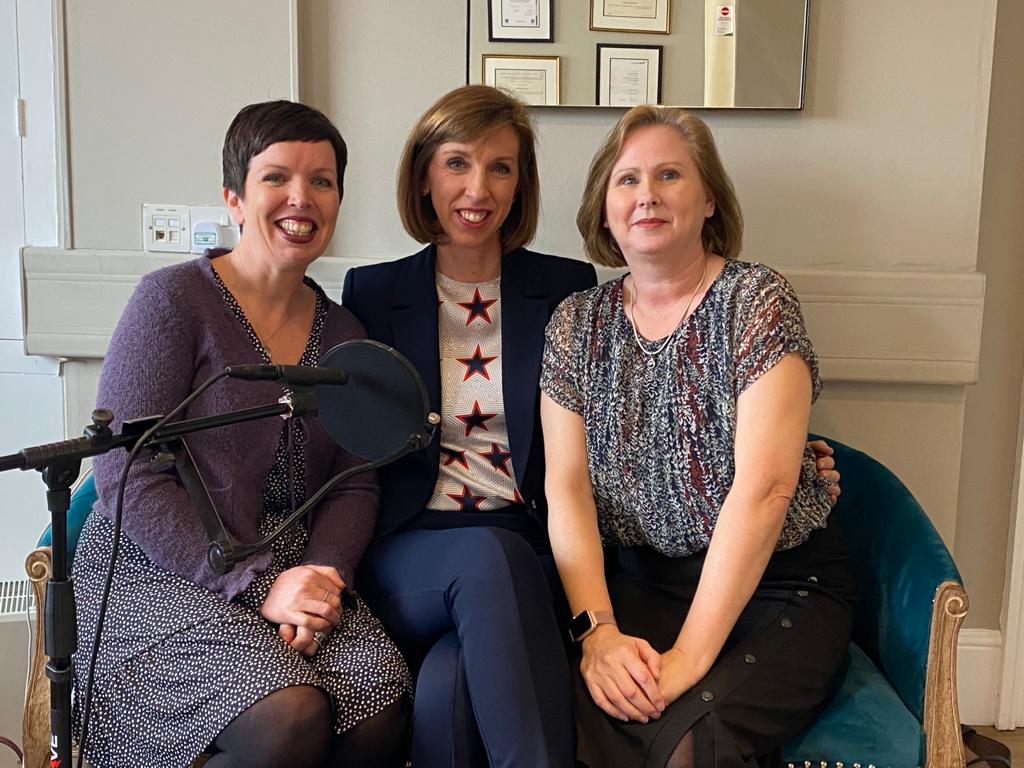
In this episode, Dr Louise Newson is joined by Advanced Nurse Practitioner, Mandy Garland and Specialist Nurse, Sharon Hartmann – together they discuss nurse education for menopause and HRT in primary care.
Both Mandy and Sharon chose to develop their own skills and knowledge in menopause by completing the accredited training through the British Menopause Society. They are currently waiting to submit their final log book; following an intensive two years of study, specialist visits and practical assessments.
In this podcast, Dr Newson chats to Mandy and Sharon about how they have used evidence based practice to develop a pathway of care, offering patients at their busy NHS surgery a holistic service founded on NICE guidance; such as initiating and reviewing a patient’s use of HRT. This has been particularly challenging due to the lack of funding their surgery receives for management of the menopause. Mandy and Sharon hope that the long term benefits will be evident, with the improved quality of life women experience when on appropriately prescribed HRT, and that nurses all over the UK will receive the same opportunity to study at a higher level.
Mandy Garland, Advanced Nurse Practitioner, Menopause Specialist and Nurse Prescriber – @garland_mandy
Sharon Hartmann, Specialist Nurse: Integrated Sexual Health, Menopause Specialist and Nurse Prescriber – @hartmann_sharon
Mandy and Sharon’s three take home tips for nurses who want to gain a better menopause education:

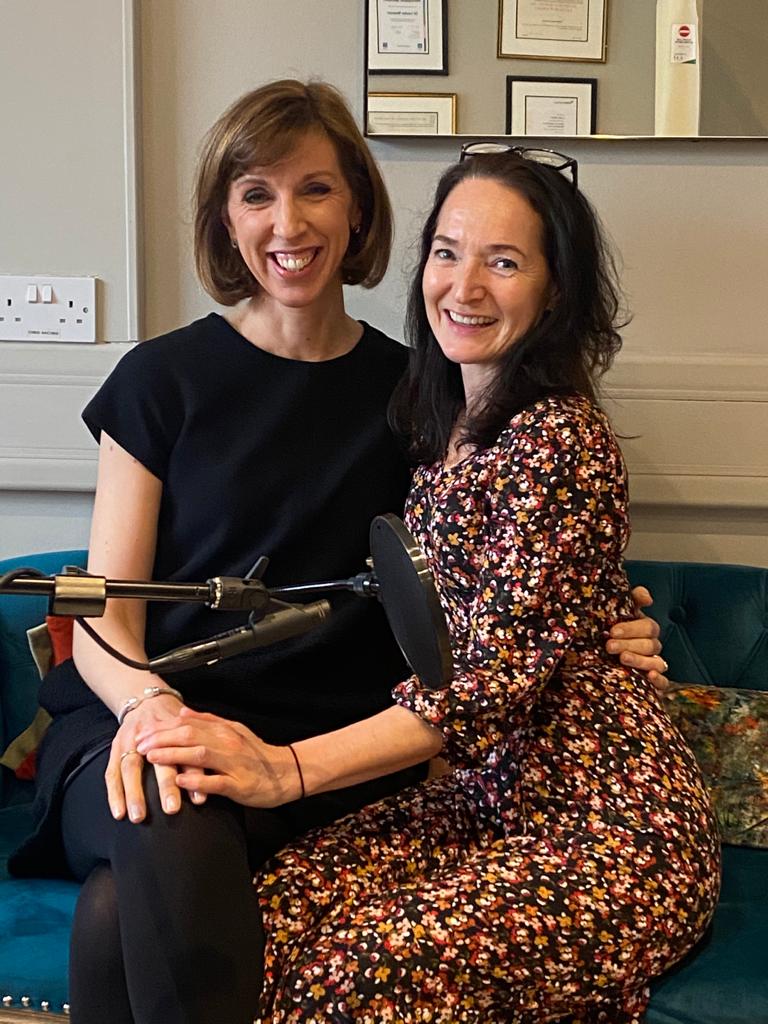
In this podcast, Dr Louise Newson is joined by Petra Coveney, Founder of Menopause Yoga – the UK’s first specialist style of yoga to support women going through the menopause.
Petra, who is a member of the British Menopause Society (BMS) for health practitioners and a senior yoga teacher and trainer, developed Menopause Yoga to meet the physical and emotional needs of women going through menopause. In May she is launching the first online Teacher Training course, which includes Dr Louise Newson as a Guest Speaker. Dr Newson’s book on the menopause is a core course reading text.
In this podcast, Dr Newson and Petra discuss:
Petra Coveney’s three take home tips:
You can find out more on her website: www.menopause-yoga.com
Instagram: @Menopause_Yoga


In this podcast, Dr Louise Newson chats to Cari Rosen, author, writer and editor of Gransnet.com.
Gransnet was set up following the success of Mumsnet. Gransnet has 320k users, bringing in three million page views a month. Many perimenopausal and menopausal women feel socially isolated and alone when they experience symptoms that often they don’t even realise are related to their reducing hormone levels. It can be very useful to share symptoms and also discuss experiences with other women. Increasingly, women are turning to platforms such as Gransnet where they can be frank and open with people they don’t know and seek out support at various times of the day and night. In this podcast, Dr Newson and Cari discuss the various ways women can support each other during the perimenopause and menopause, as well as dispelling some myths about the menopause and HRT along the way.
Cari Rosen’s three take home tips and reasons to visit Gransnet:

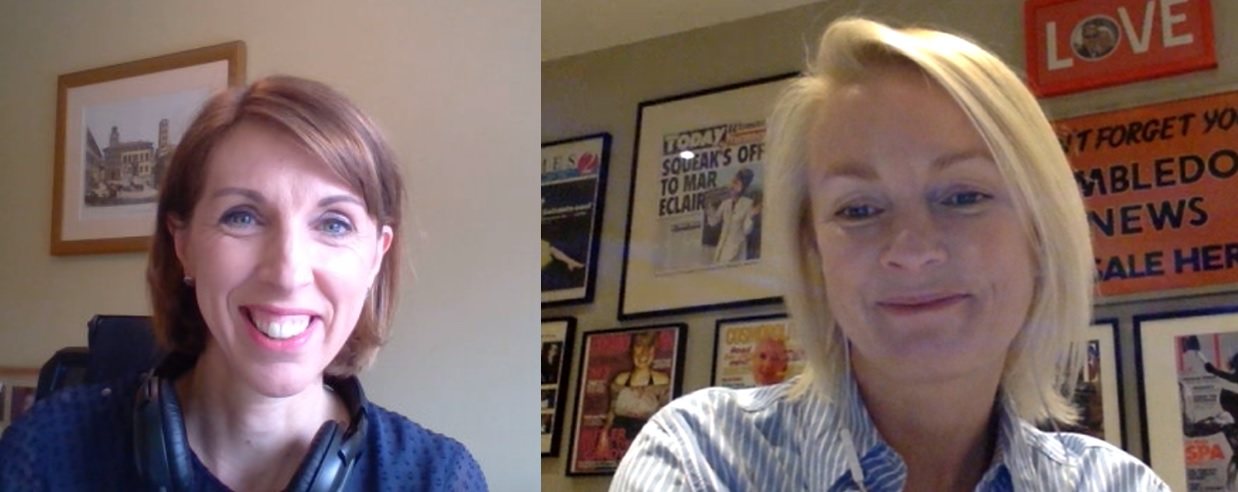
In this podcast, Dr Louise Newson is joined (virtually!) by Lorraine Candy – co-founder of the podcast series Postcards from Midlife. Lorraine and Dr Newson chat about the stigma surrounding the word menopause and how we need to work together in order to break that down and really empower women so they can receive the correct help and treatment. They also discuss menopausal symptoms such as anxiety and fatigue and how they can have a massive, negative impact on women’s lives if left untreated.
Dr Newson and Lorraine also talk about how important it is for women to receive the right dose and type of HRT. Many women wrongly think that HRT is a single treatment, whereas in fact, there are different hormones available and also different doses. The importance of exercise, nutrition and wellbeing is also discussed. Lorraine also talks very openly about her own experience and how she struggled for several years before receiving the right help.
Follow Lorraine on Instagram:
@sundaytimeslorraine
@postcardsfrommidlife
Lorraine Candy’s three take home tips:


In this podcast, Dr Louise Newson is joined by Kate Irvine and together they discuss Kate’s online perimenopause and menopause survey, The Big M.
Kate began her survey as a way to find out how women really feel about the perimenopause and menopause, including which aspects of the Big M women find the most difficult, whether they felt they could discuss it with anyone and whether they had any help getting through it. Kate hopes to be able to use the information given to help other women in the future. Kate also intends to compile the detailed responses into a book which helps women to feel better about what they are going through, she and Dr Newson discuss how the idea for the book came about, and how Kate hopes it will work.
During this podcast, Dr Newson and Kate touch on several different topics which the survey highlighted, such as realising you are perimenopausal, how helpful GPs can be (or otherwise), women leaving the workforce because of their symptoms, the over-prescribing of antidepressants and symptoms such as vaginal atrophy. Ultimately they agreed that talking is vital and makes you feel better, and Kate hopes that (if published!) reading her book will be like having a chat with friends about a common issue.
The survey is still open for responses, or if you just want to email her about any aspect of your menopause experience you can reach her at: kate@thebigm.net
Kate Irvine’s Three Take Home Tips:



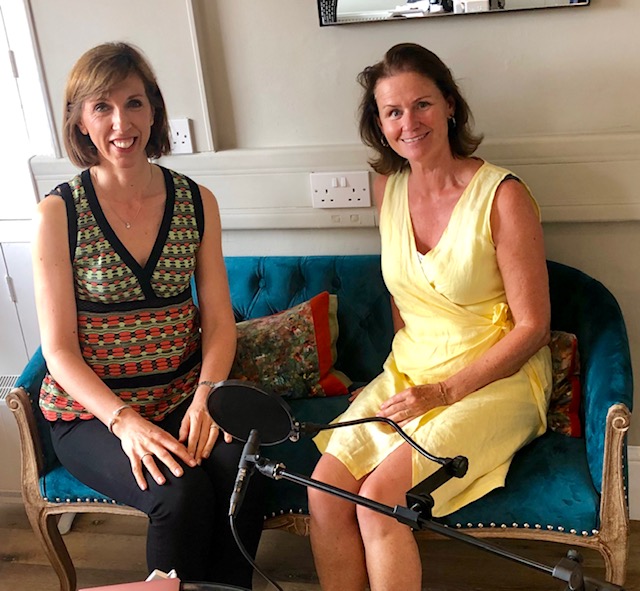
In this week’s podcast, Dr Newson is joined by Emma Ellice-Flint, a clinical nutritionist and former chef.
In light of the outbreak of Coronavirus, Emma chats to Dr Newson about the different things we can do to help support our immunity and keep our bodies healthy. Emma describes the certain foods, drinks and nutrients that are beneficial for our overall health as well as those that can strengthen our immune systems.
Emma Ellice-Flint’s three take home tips for staying healthy:
Website: www.emmasnutrition.com
Instagram: @emmas_nutrition
Facebook: @emmasnutrition

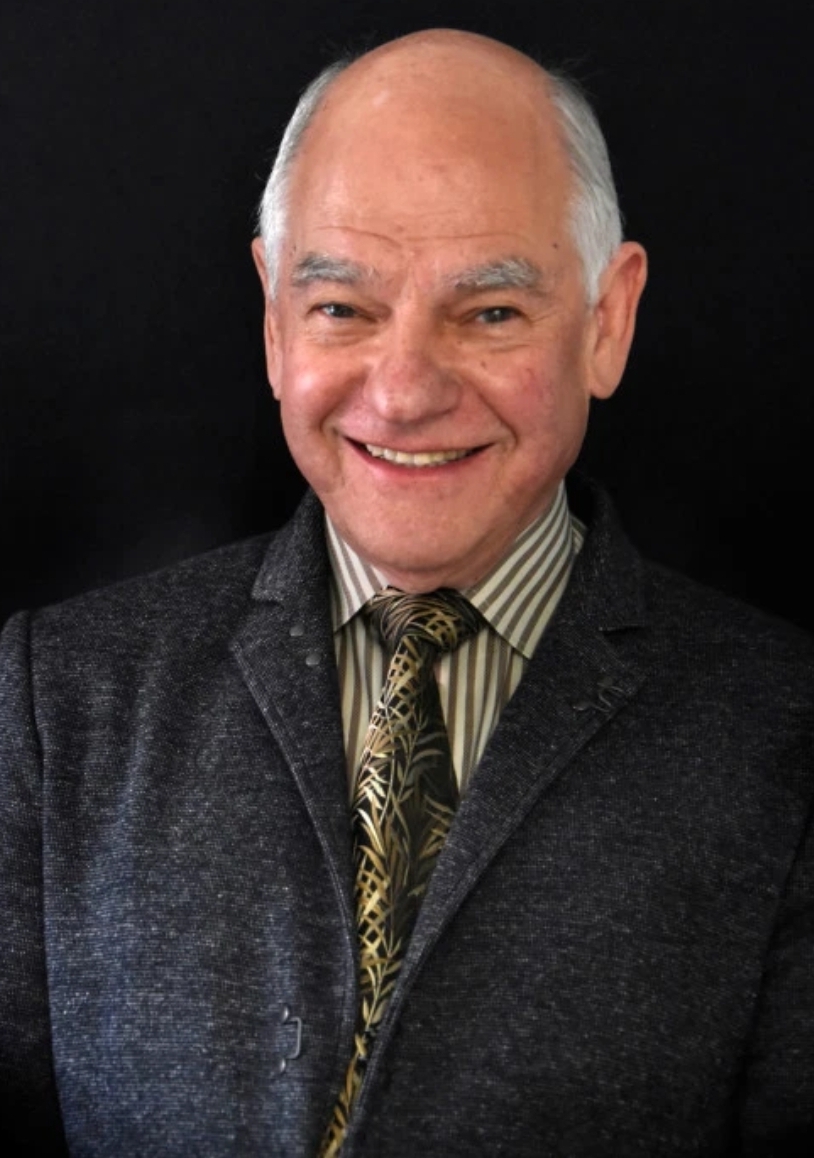
Avrum Bluming was a clinical professor of medical oncology at the University of Southern California and spent four years as a senior investigator for the National Cancer Institute. For more than two decades he has been studying the benefits and risks of hormone replacement therapy administered to women with a history of breast cancer. He is also the co-author of the book Oestrogen Matters.
In this podcast, Dr Newson talks to Avrum about the numerous health benefits of oestrogen in women, including reducing future risk of heart disease, osteoporosis and dementia. It is a very sobering thought that as many women die from osteoporosis as breast cancer, yet so many women are denied oestrogen in HRT for the wrong reasons. Avrum’s wife was diagnosed with breast cancer many years ago and he talks about treatments for breast cancer which can lead to an early menopause.

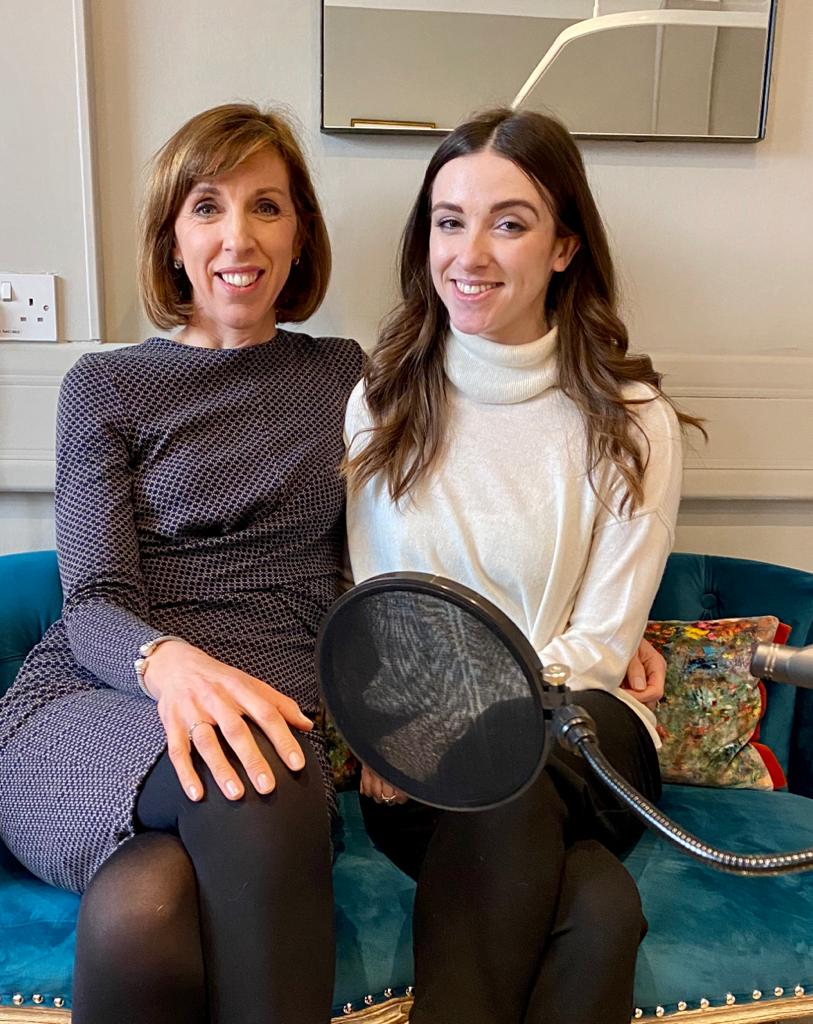
In this week’s podcast, Dr Newson is joined by Lauren Redfern, a researcher who has been exploring the experiences of women using testosterone as part of their HRT treatment. Lauren has been spending time at Newson Health Menopause and Wellbeing Centre over the past year observing many different aspects of women’s care; from the moment they make contact with the team right through to their consultation. She is interested in hearing stories from women first hand about their treatment journey and is particularly interested in the gendered aspects of hormonal care. Lauren hopes that her work will provide insight into the realities facing women negotiating menopausal care in the UK today; something that she feels is currently vastly underrepresented in both social and public health research.
If you would like to know more about Lauren’s research you can visit her website www.laurenredfernwrites.com or follow her on Instagram @laurenredfernwrites where she posts about everything from the history of hormones to updates on her research.
Lauren’s top three facts about testosterone and menopause care:


In this episode, Dr Louise Newson is joined by yoga teacher, Claudia Brown. Claudia is an Om Yoga magazine columnist and runs classes, workshops and retreats in the West Midlands. She also works with professional footballers, teaching yoga at Doncaster Rovers Football Club! Together, Dr Newson and Claudia discuss ageing well and the menopause, demystifying meditation, how yoga is more than physical postures and why everyone should give it a try.
Claudia’s top three tips for beginning your yoga journey:
Twitter – yogabyclaudia

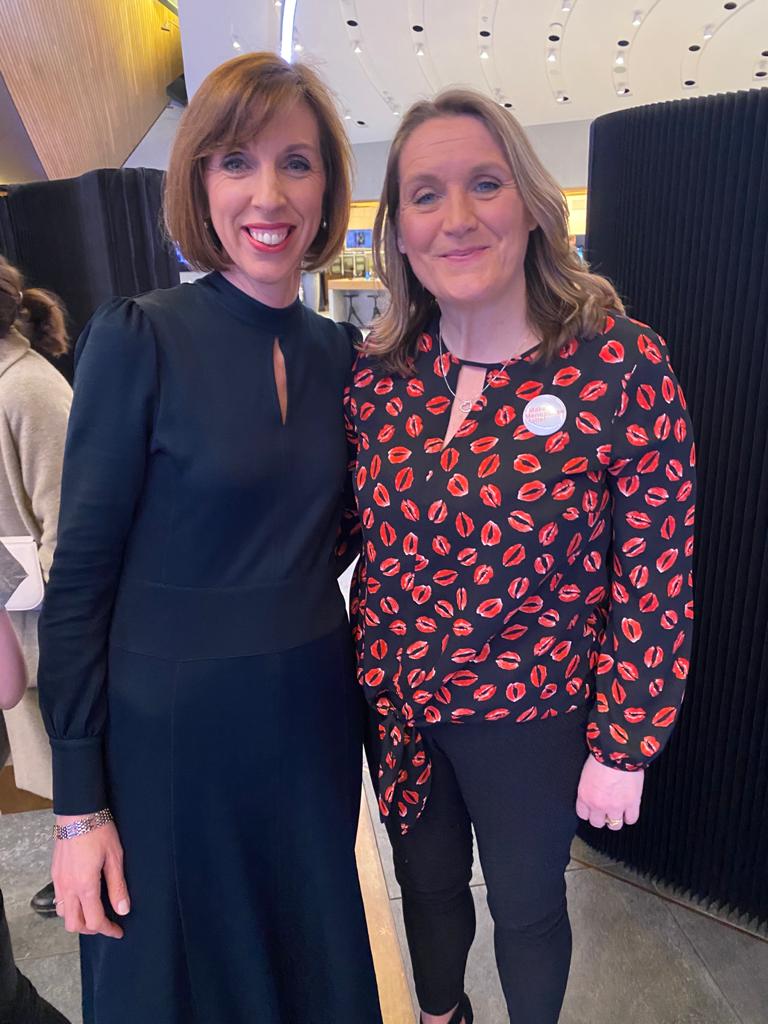
In this week’s podcast, Dr Newson talks openly and candidly to Samantha Evans about sexual problems and the menopause. Sam Evans is a sexual health and pleasure expert, with a nursing background. She is also co-owner of the company www.jodivine.com
Together, Sam and Dr Newson discuss the various ways in which libido and sexual difficulties can arise during the menopause. There are various treatments depending on the underlying cause and these are explored in detail in this episode. Too many women are not experiencing the right help and advice to improve their sexual relationships with their partner and clearly this needs to change.
Samantha Evans’ top three tips for sexual wellbeing during the menopause:


In this week’s podcast, Dr Newson is speaking with consultant dermatologist, Dr Sajjad Rajpar all about hair. Hair changes can be very common during the perimenopause and menopause. Dr Rajpar eloquently explains how our hormones are important with respect to hair growth and also hair texture. They discuss in detail reasons why women experience hair loss and the importance of having a holistic consultation to explore reasons why hair changes. Dr Rajpar talks about the different treatment options and provides some simple advice which will help us all regarding our hair.
Dr Rajpar’s three take home tips to help reduce hair loss:

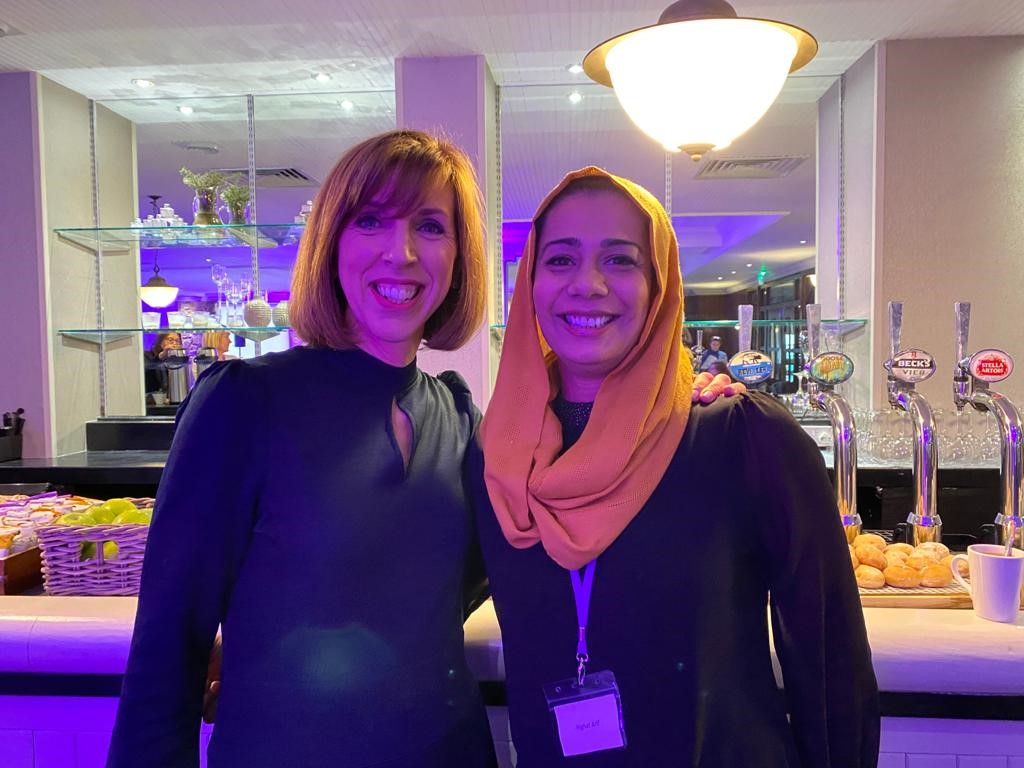
Dr Nighat Arif is a GP with a specialist interest in women’s health, based in Buckinghamshire. In this week’s podcast, Dr Arif talks openly with Dr Newson about her work educating and empowering women from different ethnic groups about the menopause. Many women from ethnic minorities think the menopause is a condition that only affects Caucasian women or it is a western phenomenon. However, it is well known that many women are experiencing symptoms such as pains in their bodies, 'head to toe pain', low mood and anxiety which are being misdiagnosed and inappropriately managed as these symptoms are not being linked to the menopause. Although language is often a barrier to consultations with a healthcare professional, there are also many cultural differences that need to be explored. Many women’s health issues, including the menopause, are kept “under the veil” and not spoken about. In this episode, Dr Newson and Dr Arif also talk about other taboo subjects such as vaginal dryness, painful intercourse and how that affects marital relationships in a conservative community.
Dr Arif offers three take home tips in Punjabi to help break down barriers and empower women from South Asian Communities to not accept their menopausal symptoms and suffer in silence.
Dr Arif’s three top tips:

Dr Louise Newson is an award-winning physician, respected women's hormone specialist, educator, and author committed to increasing awareness and knowledge of perimenopause, menopause, and lifelong hormone health. Each week, Louise dives into the newest research, treatments and hot topic issues, providing accessible, evidence-based information to empower your future health. Joined by fellow experts and special guests, with answers to your burning questions, Louise explores how hormones impact every aspect of our lives.
Described as the "medic who kickstarted the menopause revolution", Louise aims to empower a generation of women to have a greater understanding, choice and control over their treatment, bodies, minds and future health through their hormones. She is the creator of the award-winning free balance app, a Sunday Times bestselling author and the founder of the Newson Health clinic. With over three decades of clinical experience, Louise is a member of the Royal College of Physicians, a Fellow of the Royal College of GPs, a Visiting Fellow at Cambridge, a regular contributor to academic journals including the Lancet and the British Journal of General Practice, and has been awarded an honorary Doctorate of Health from Bradford University.




